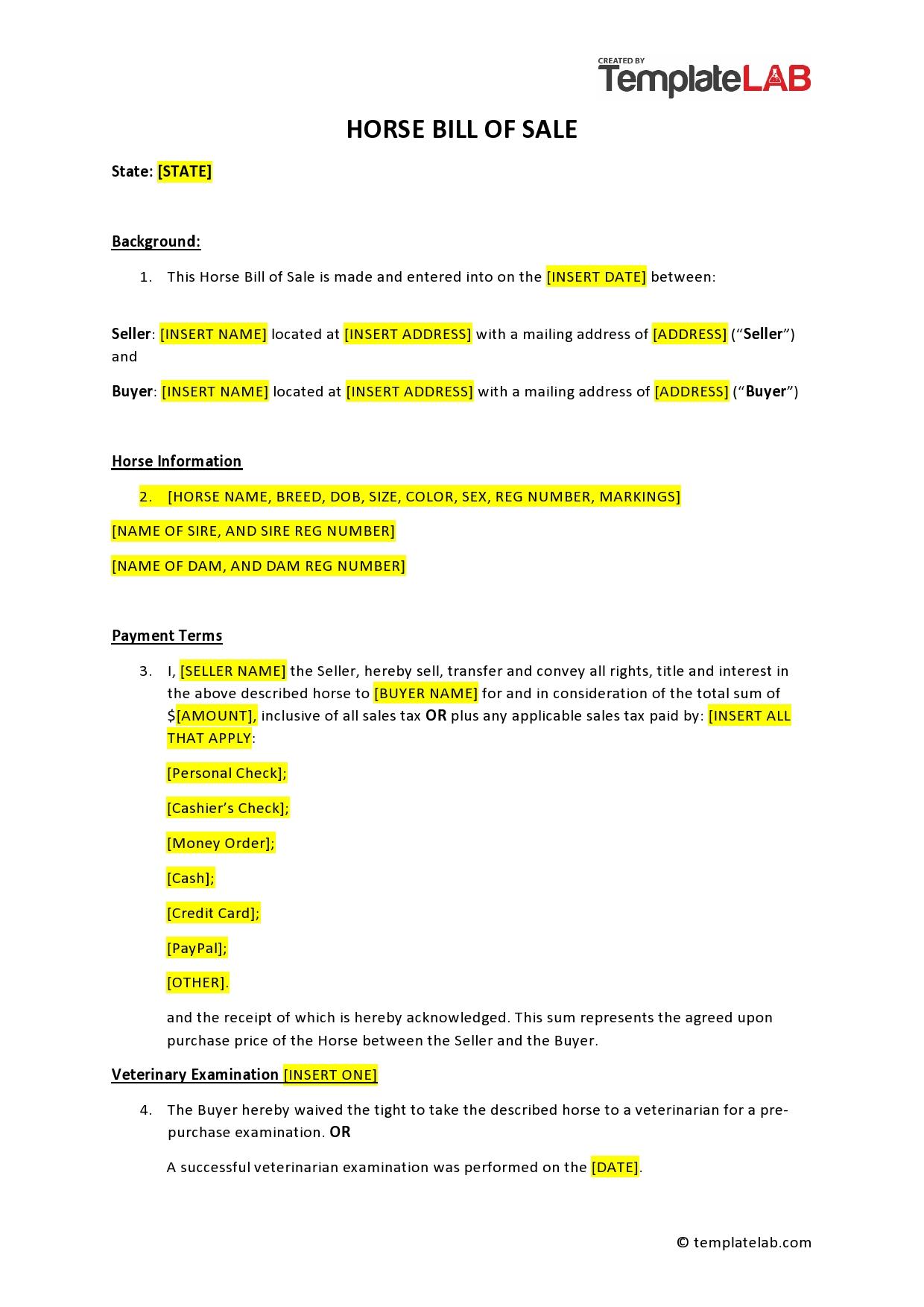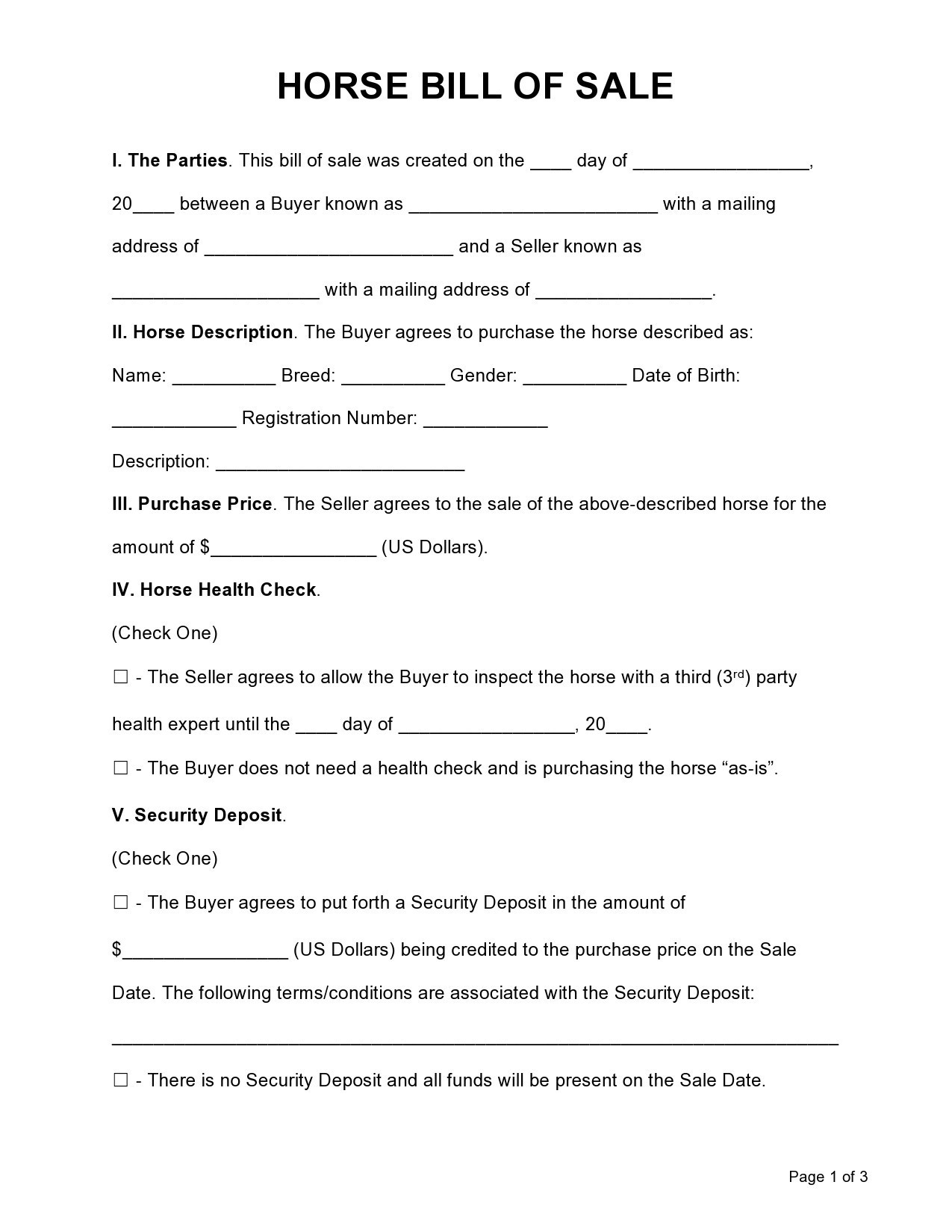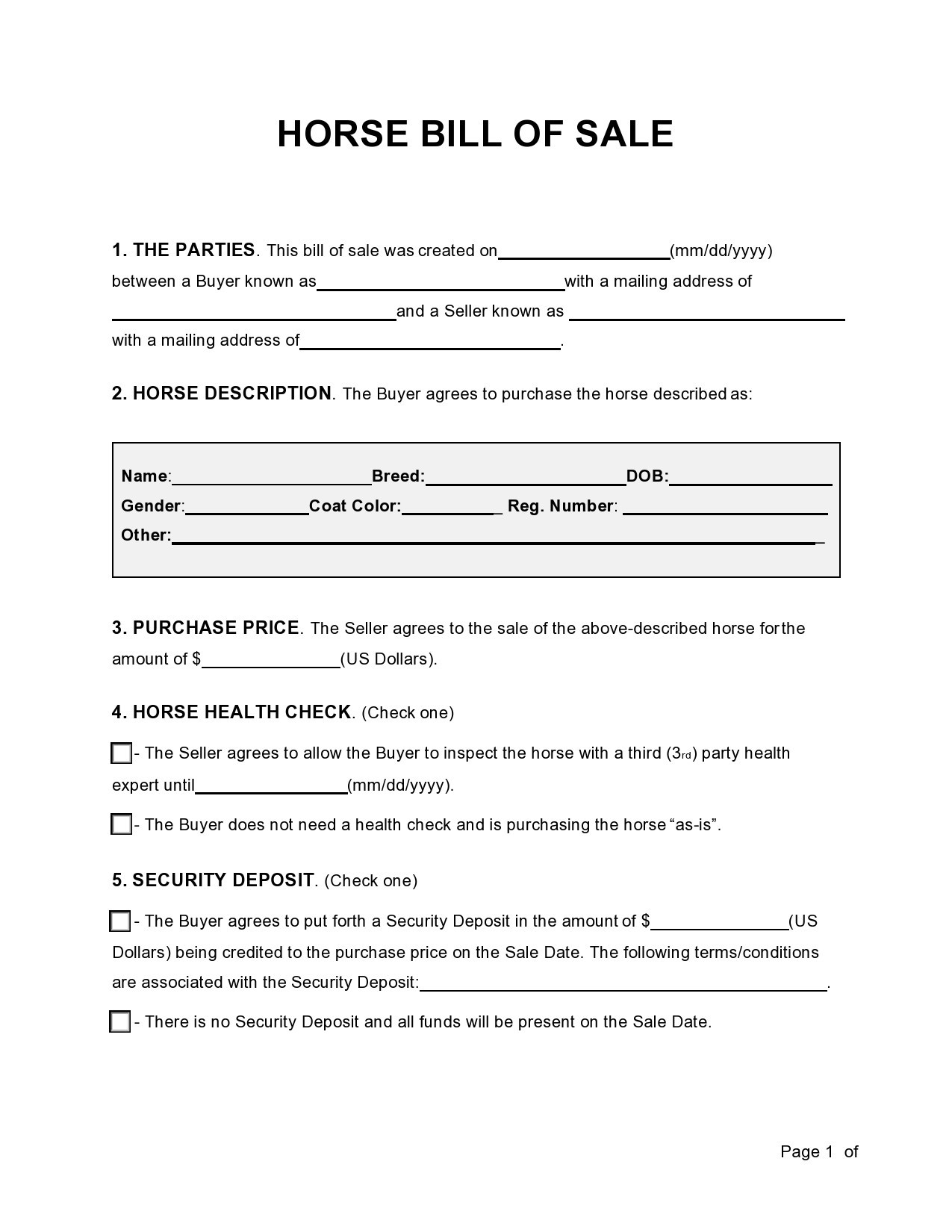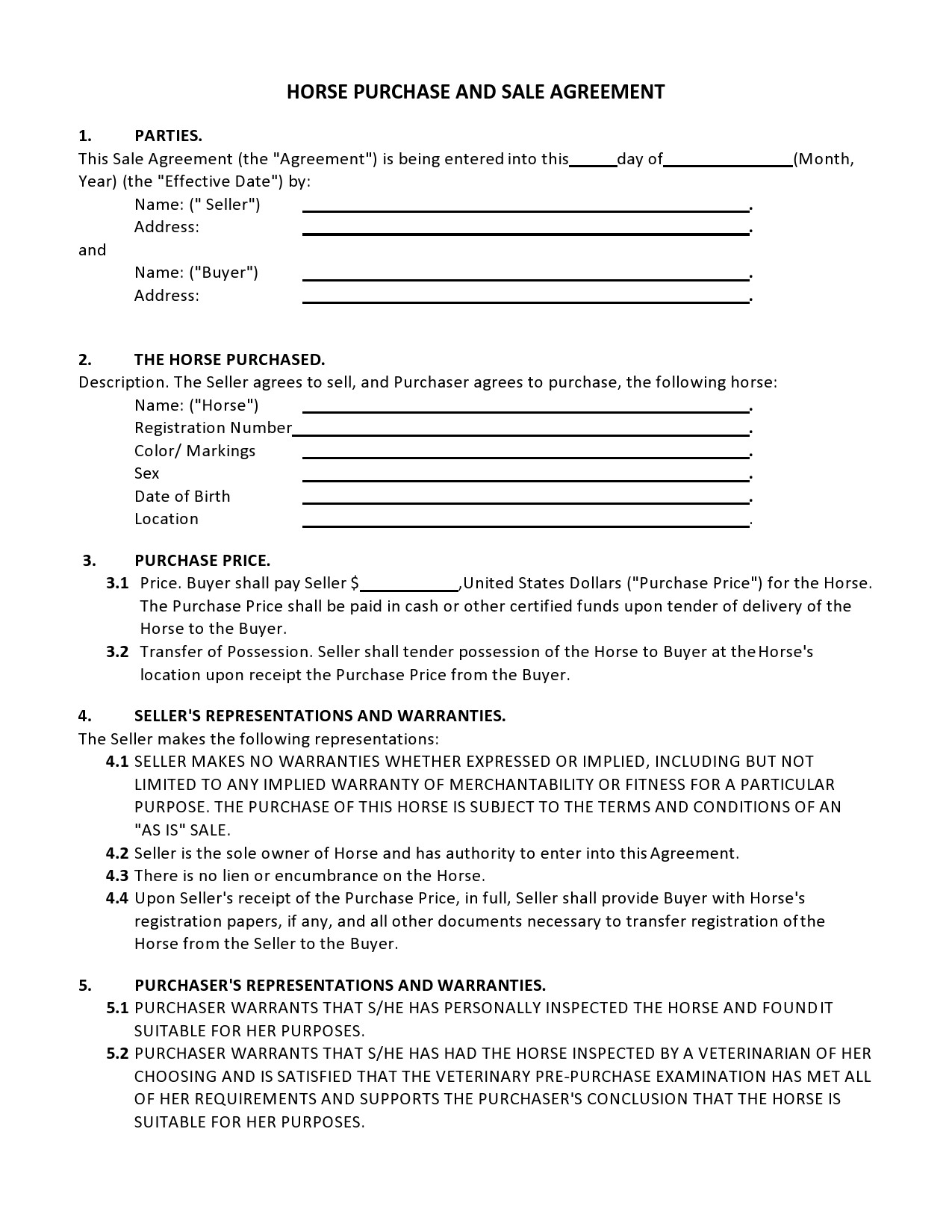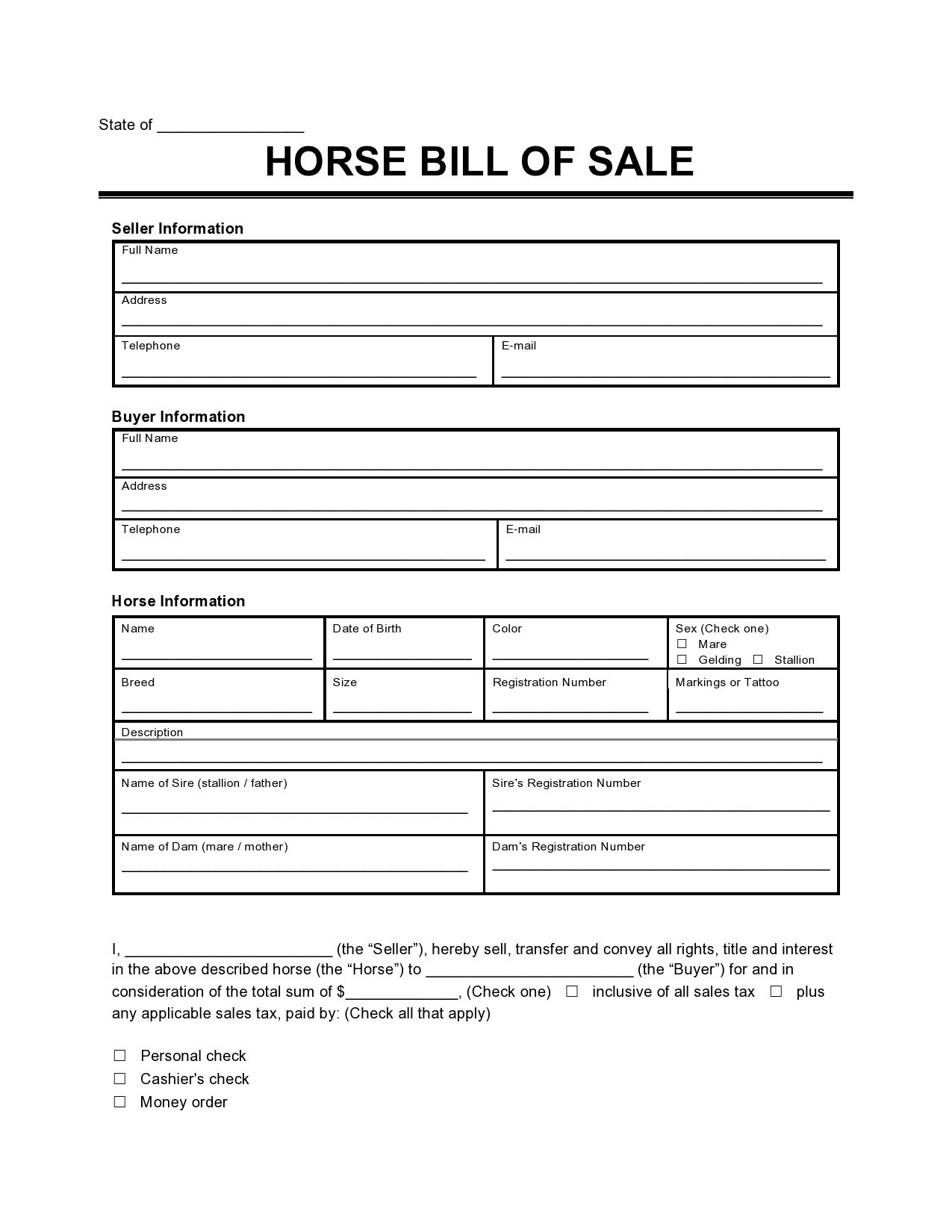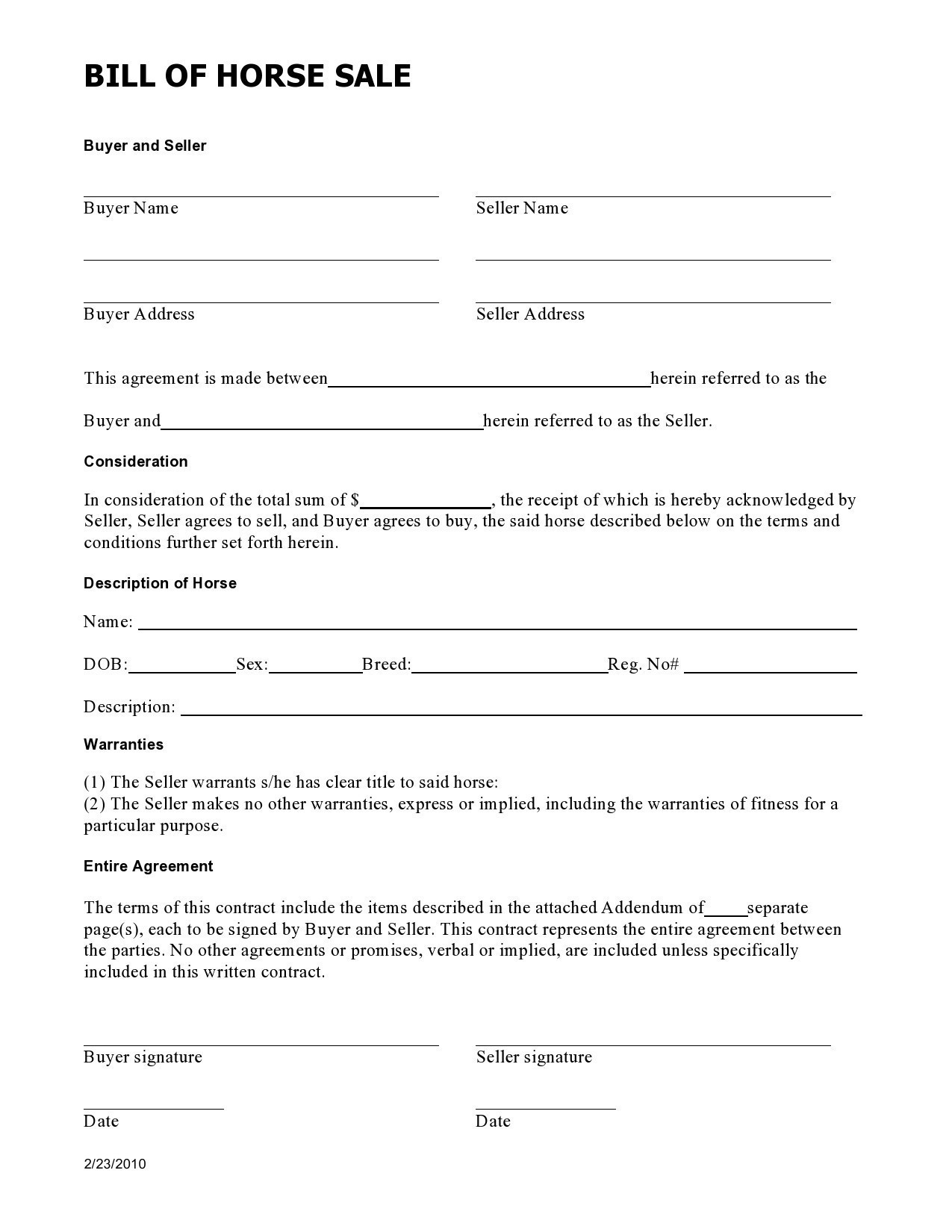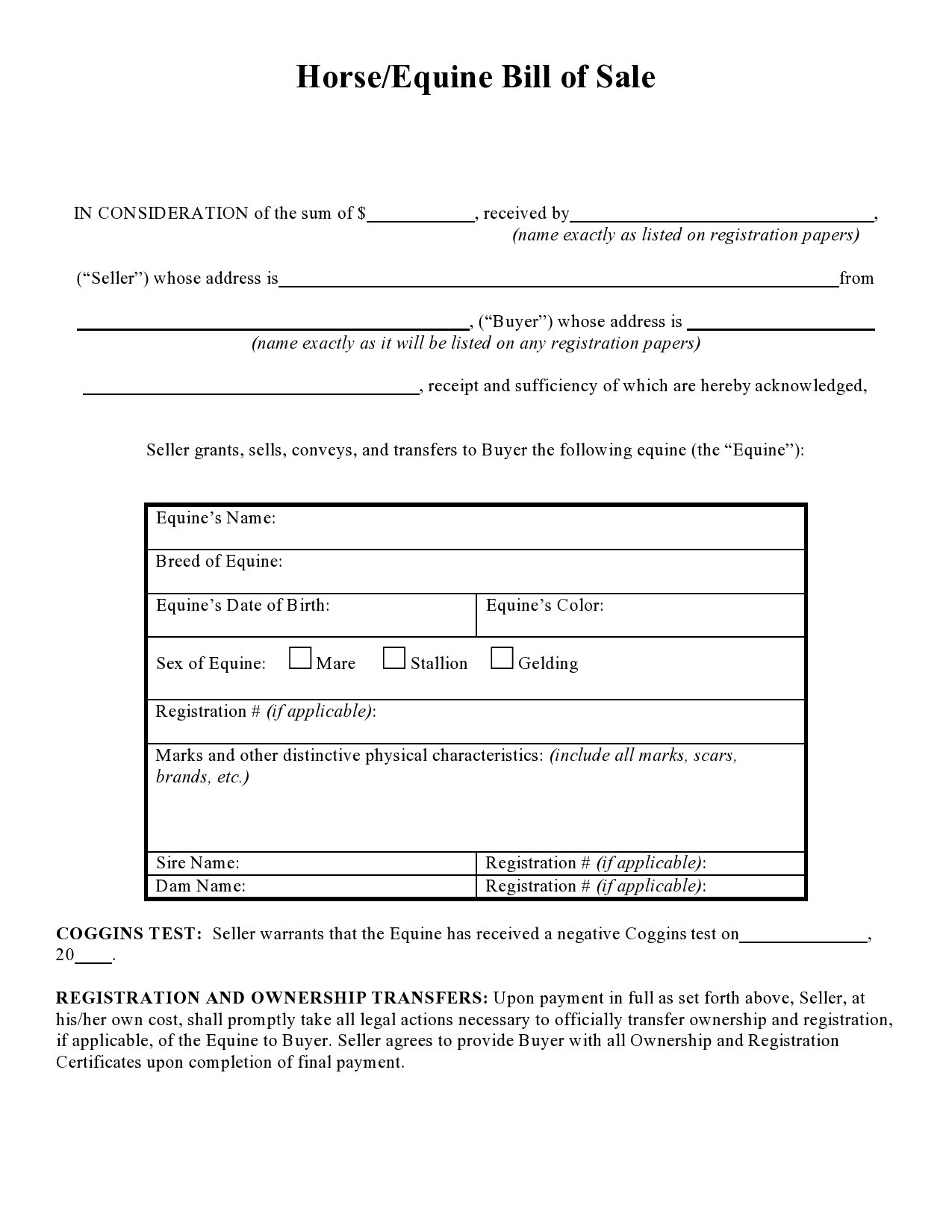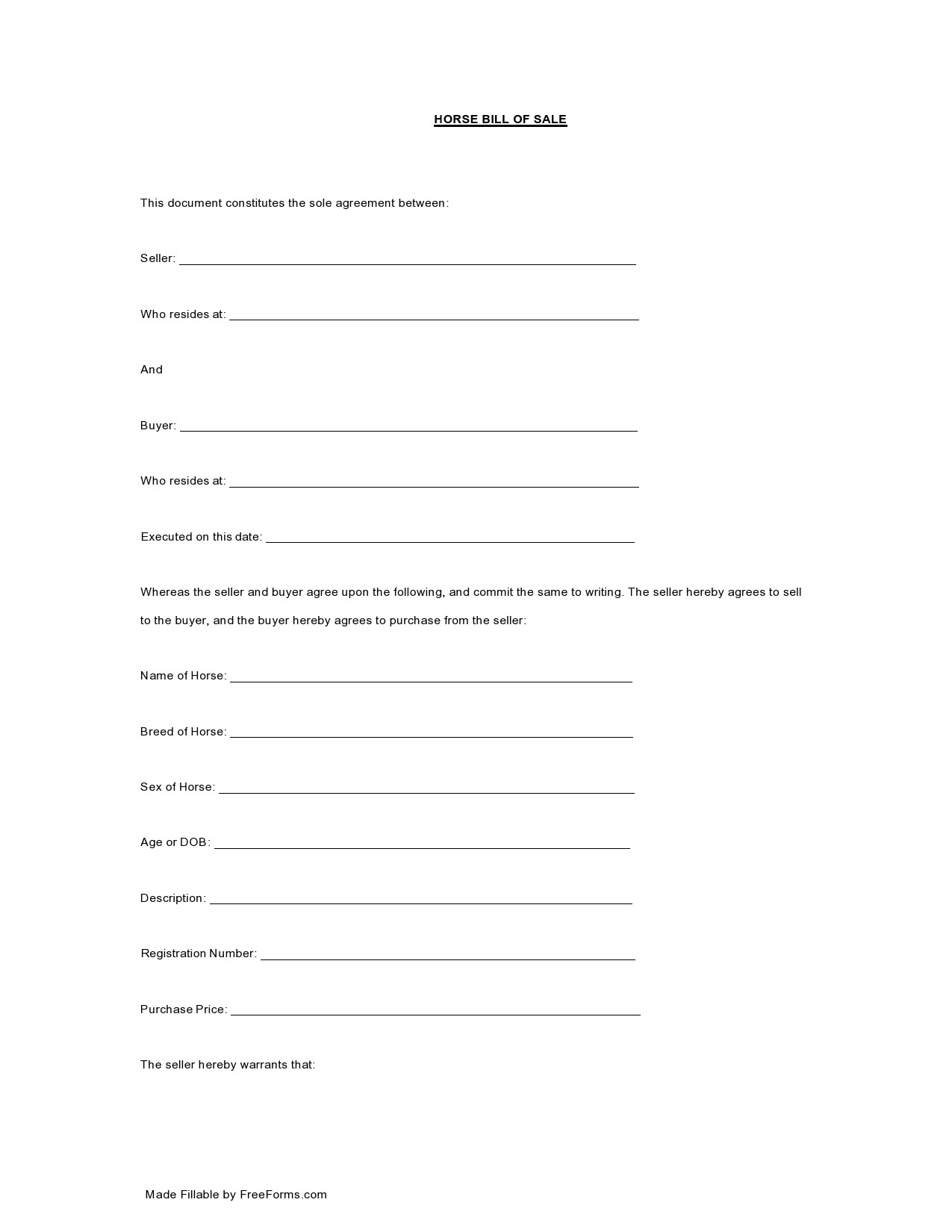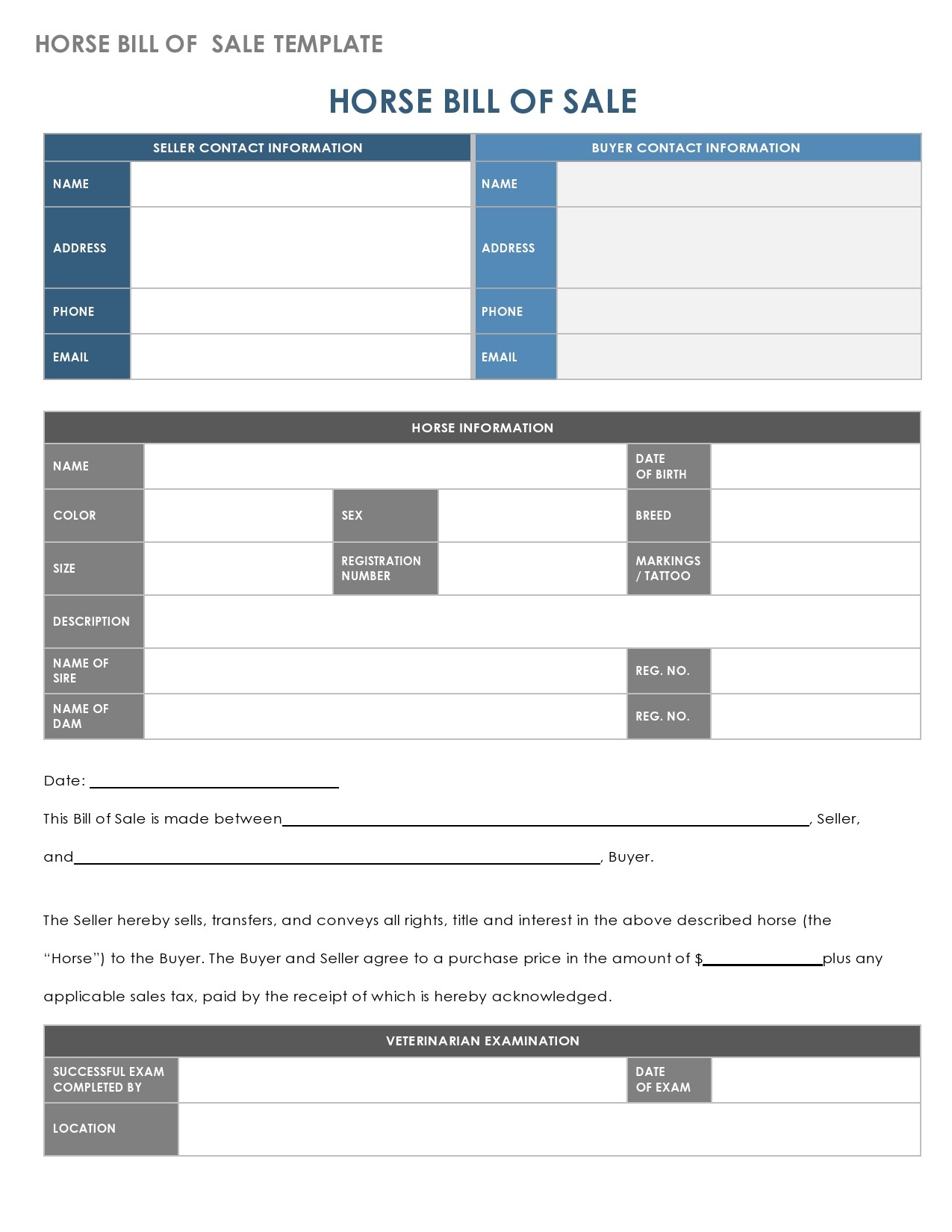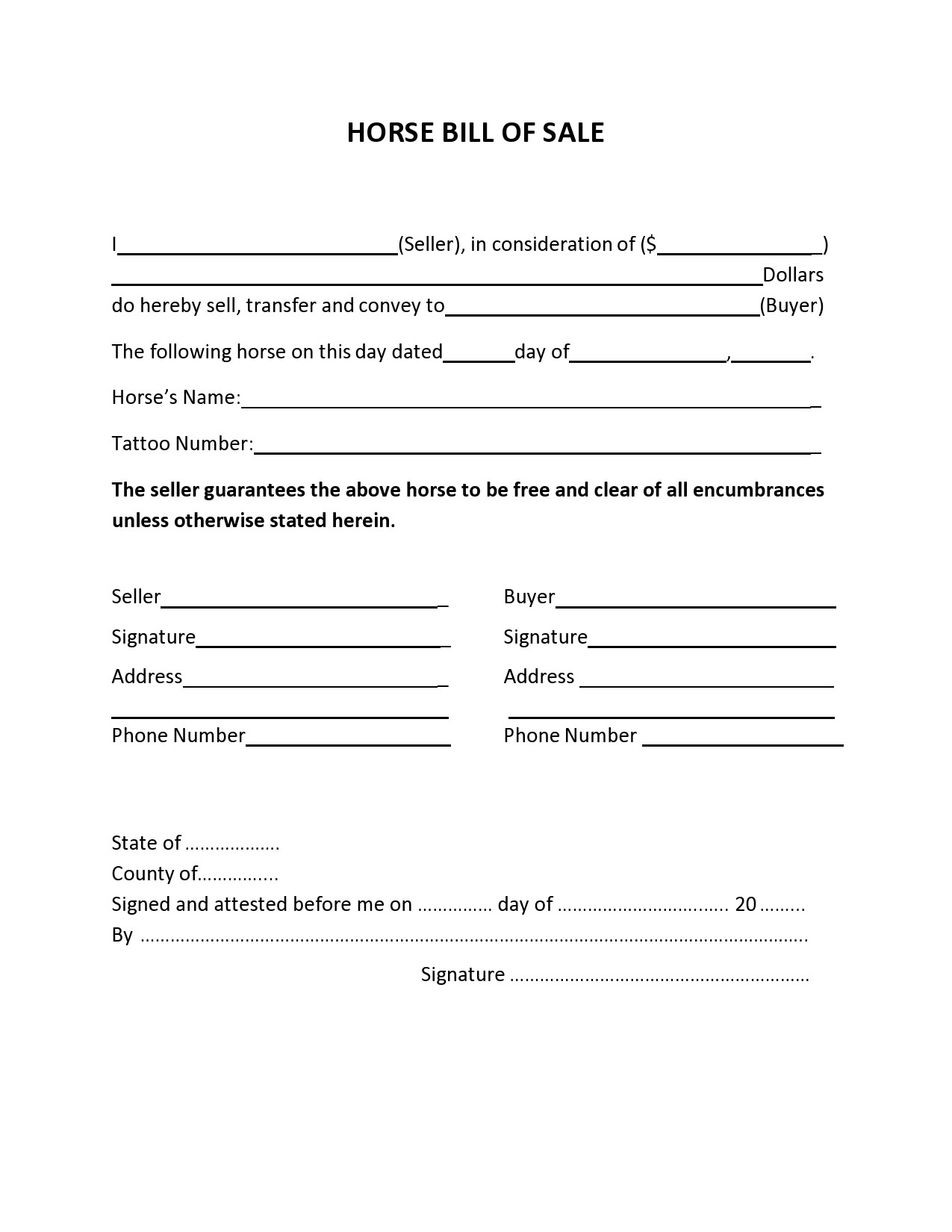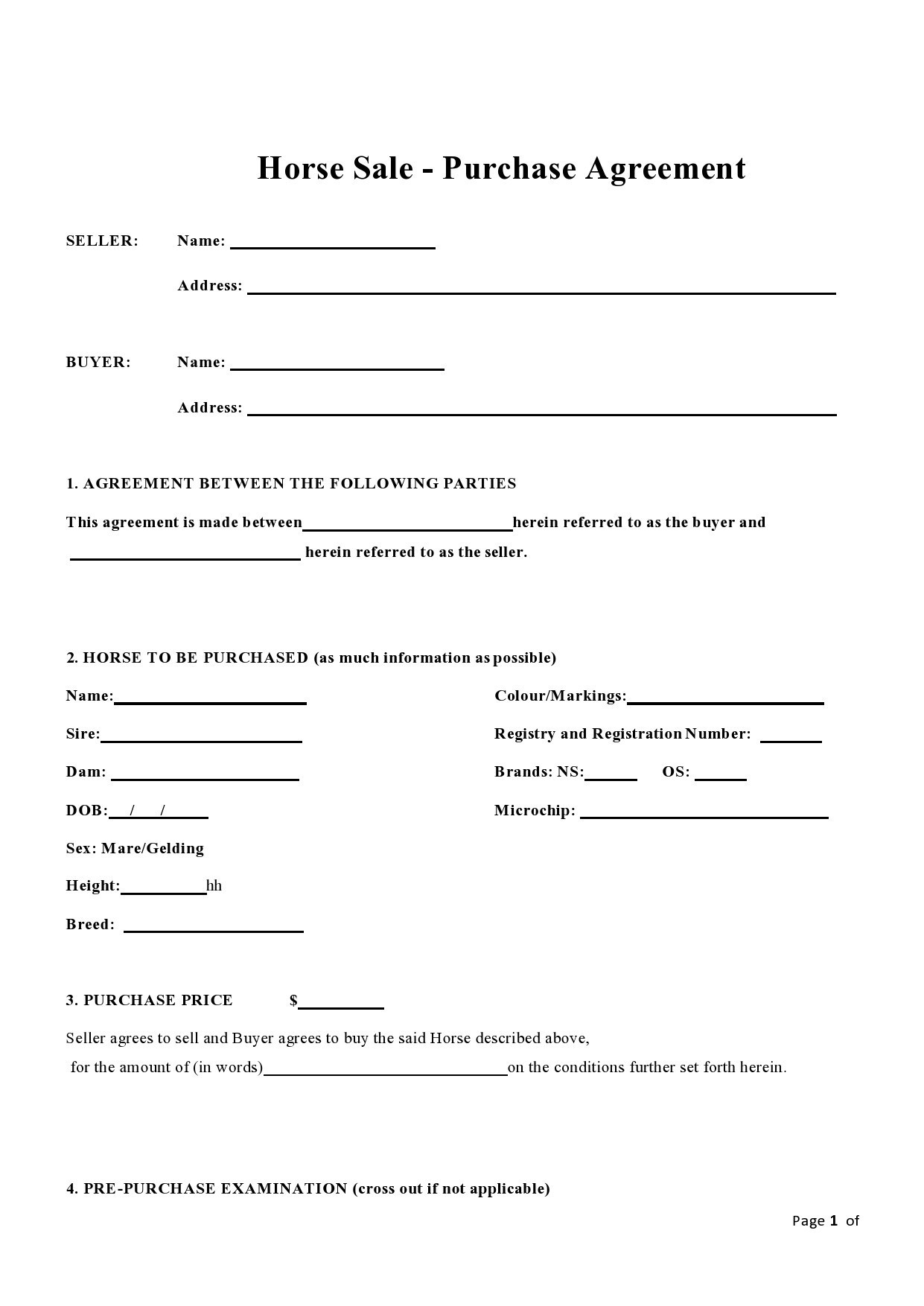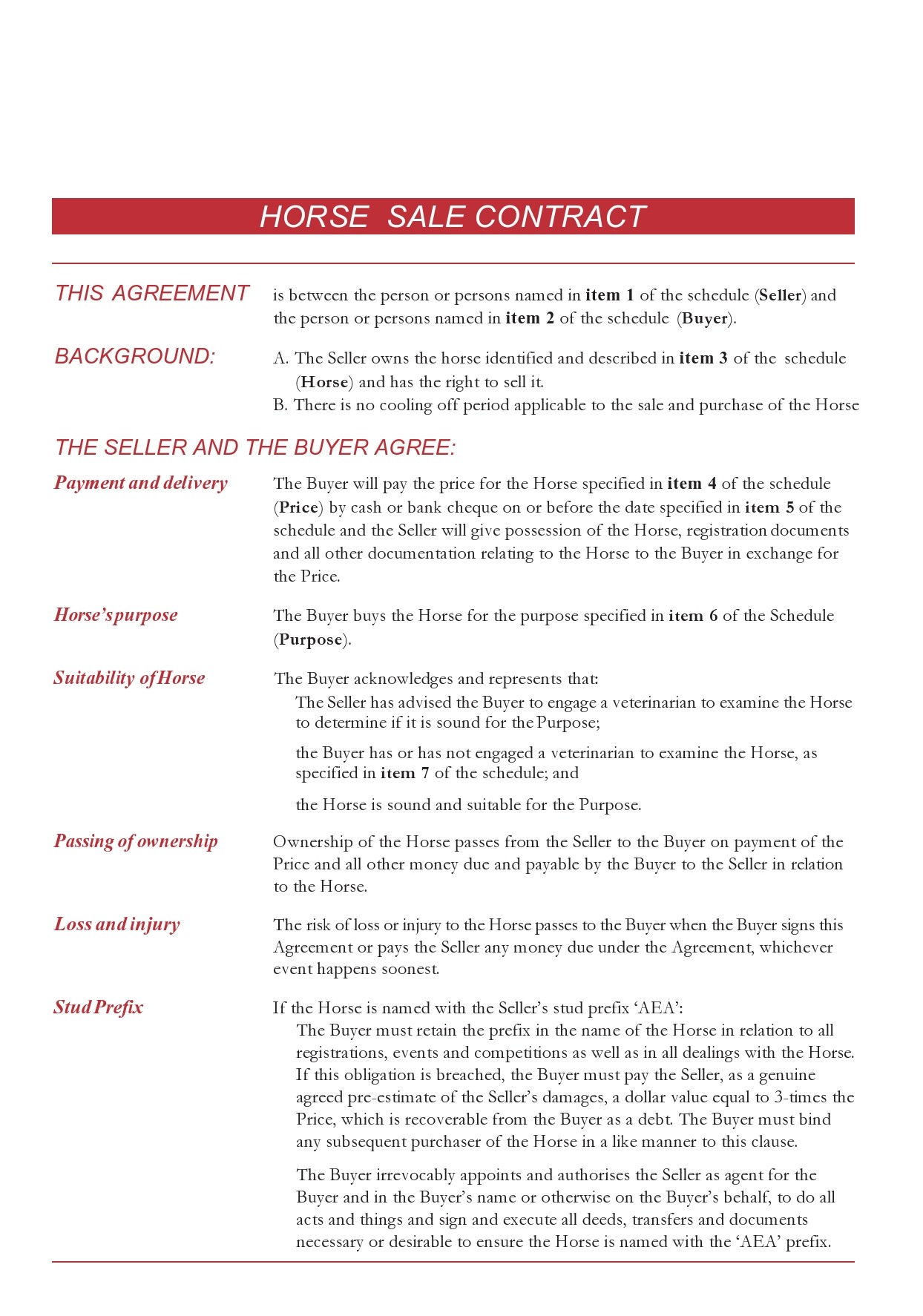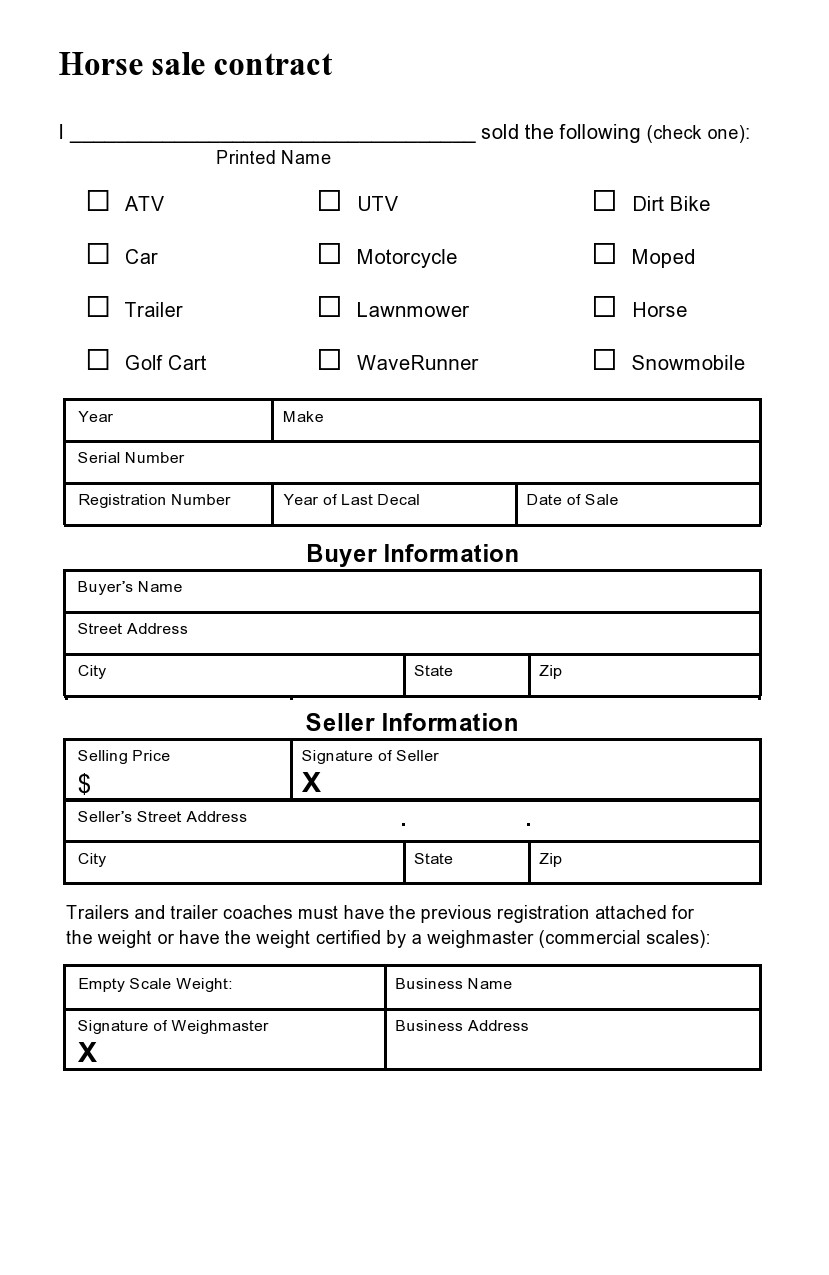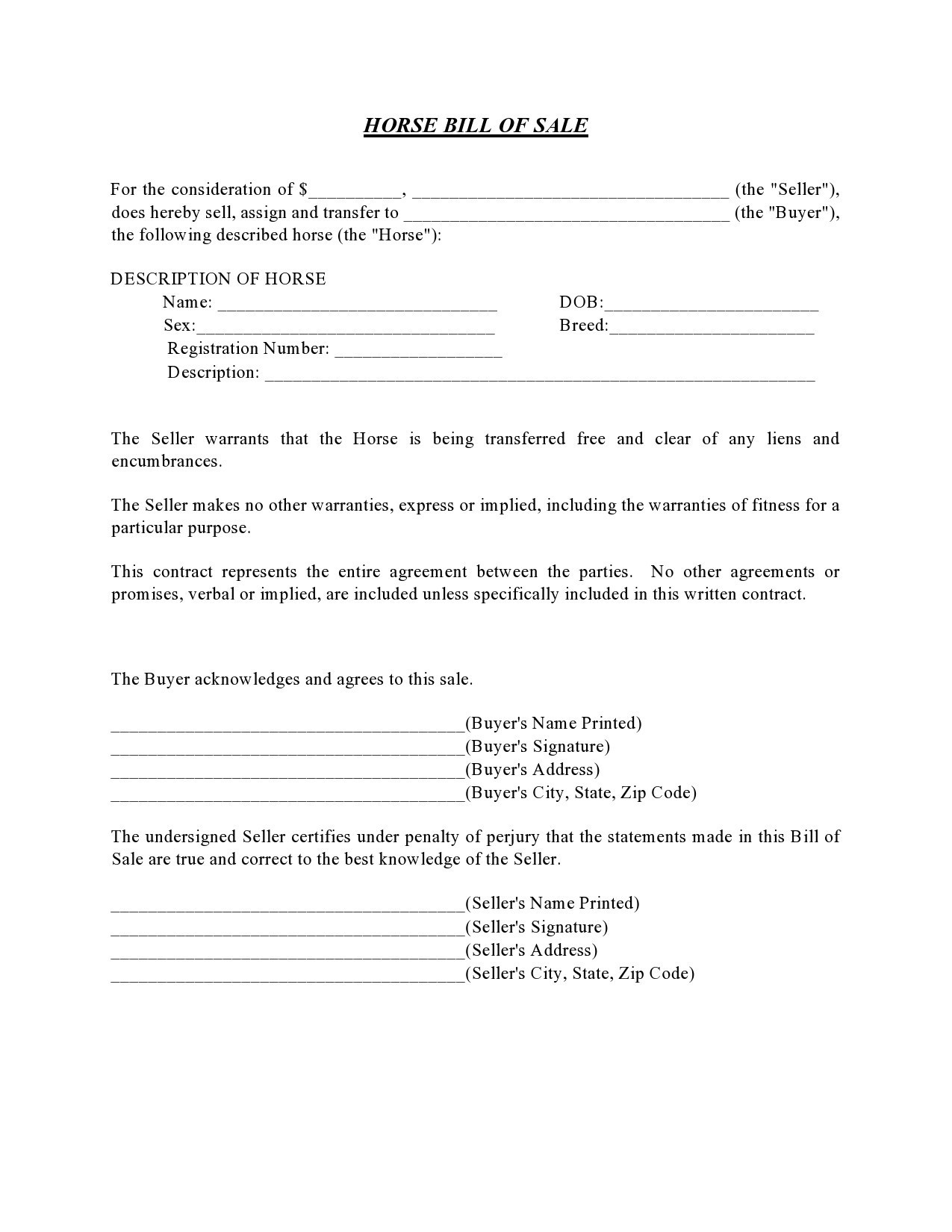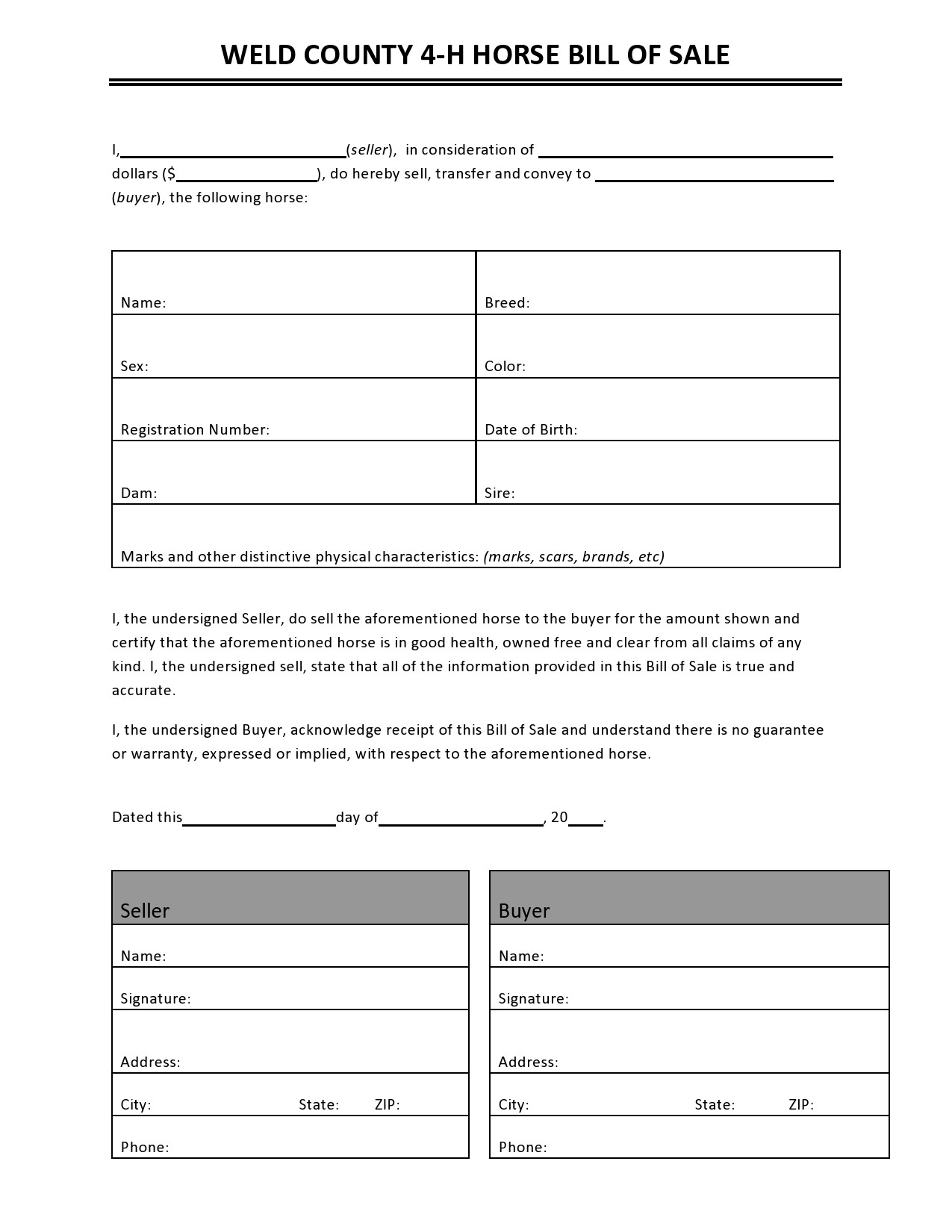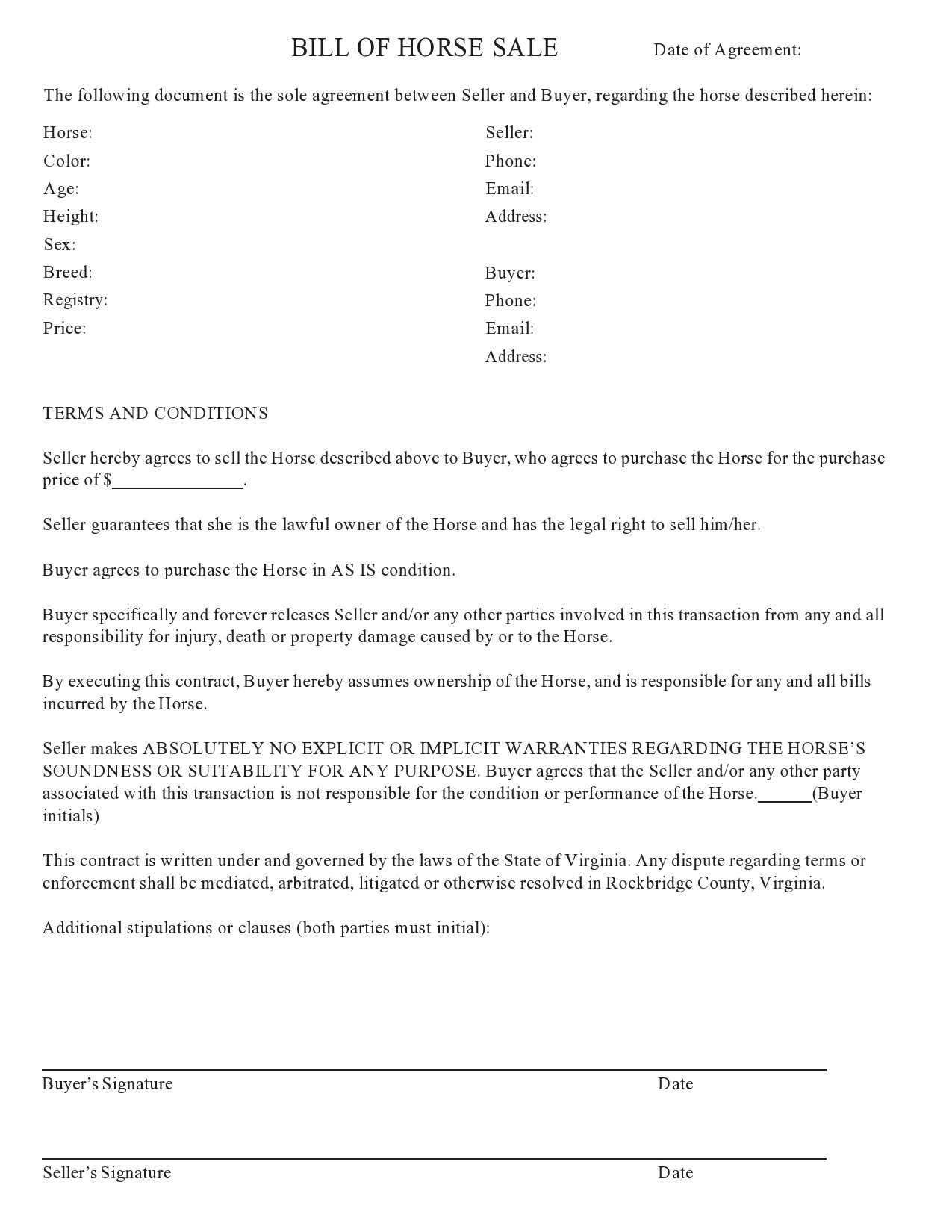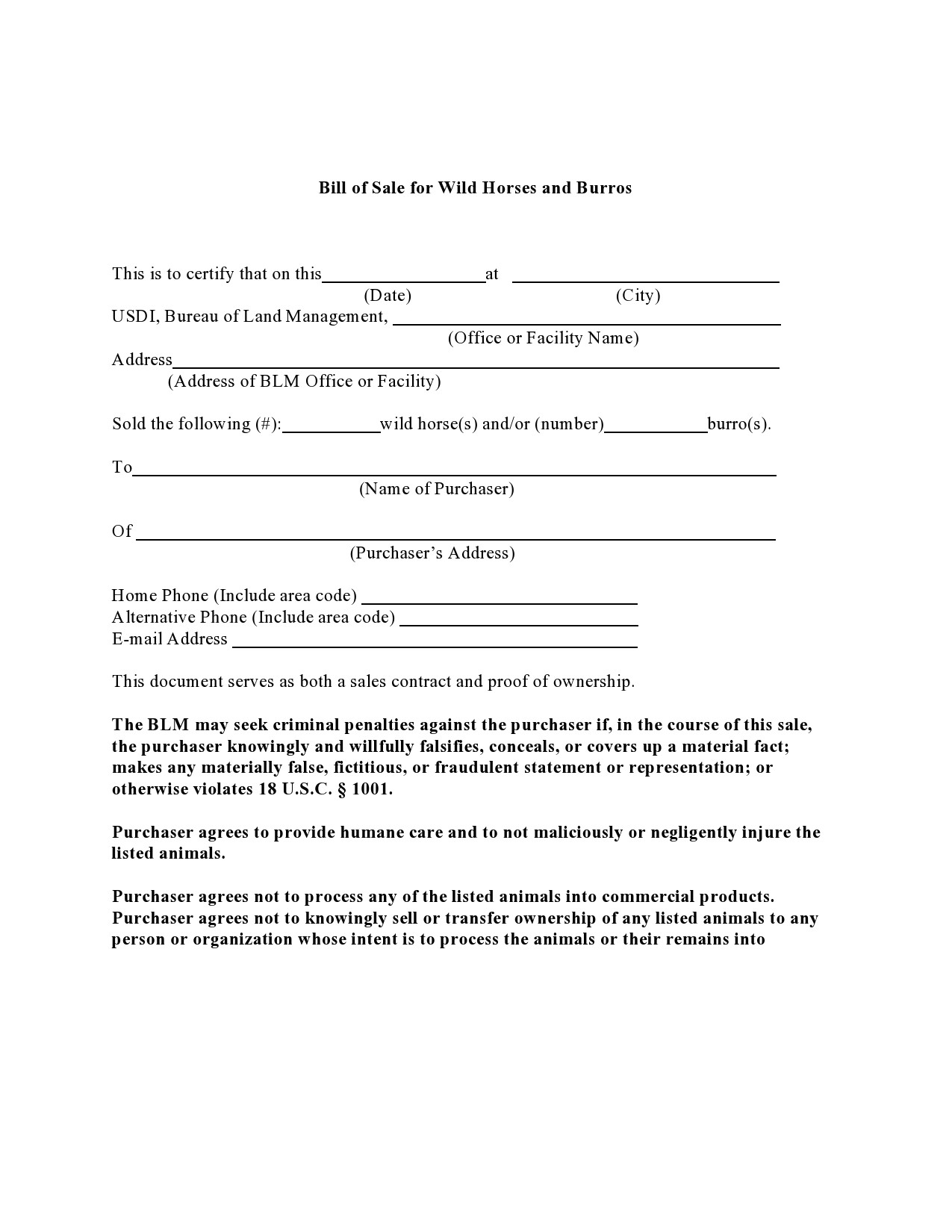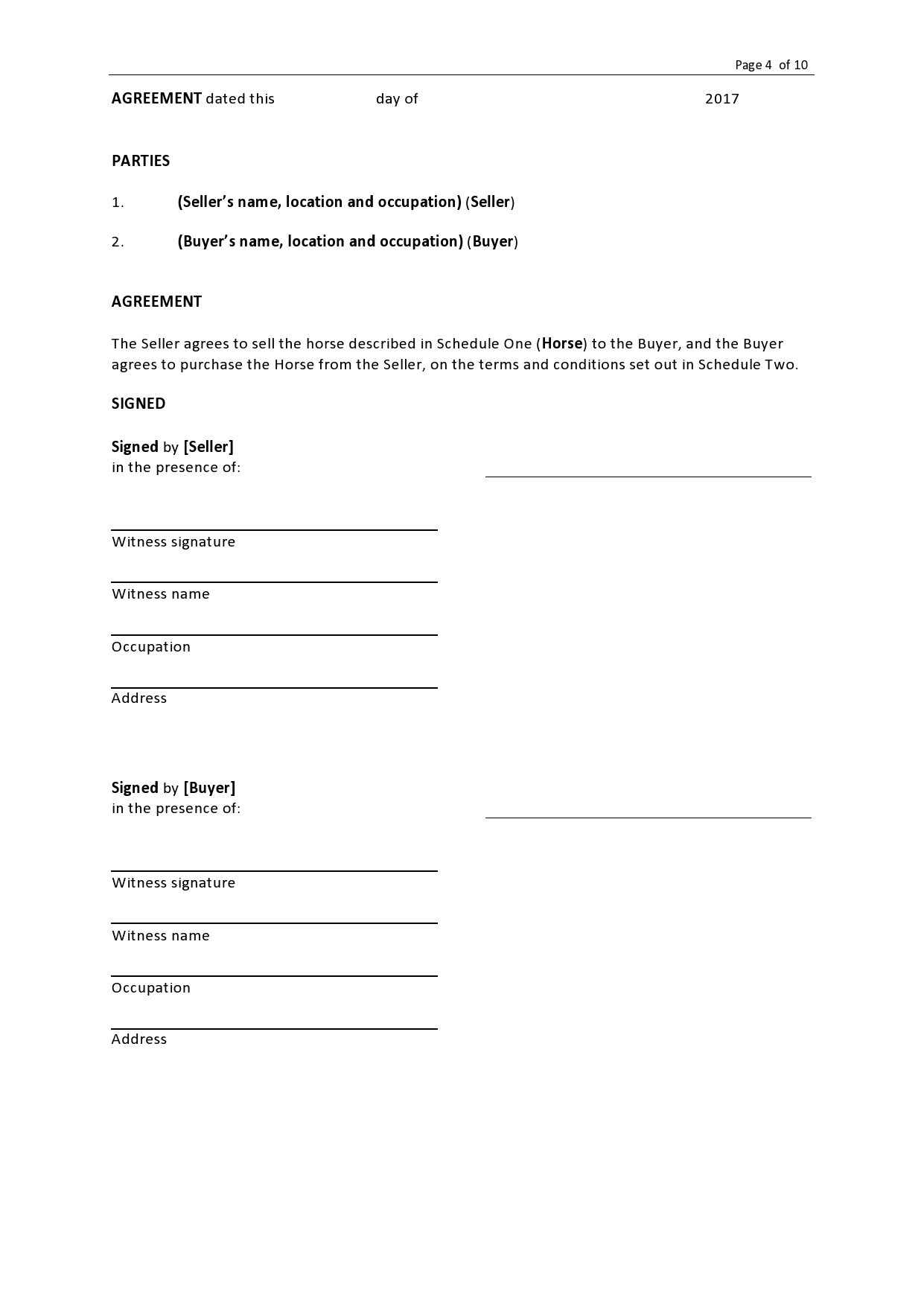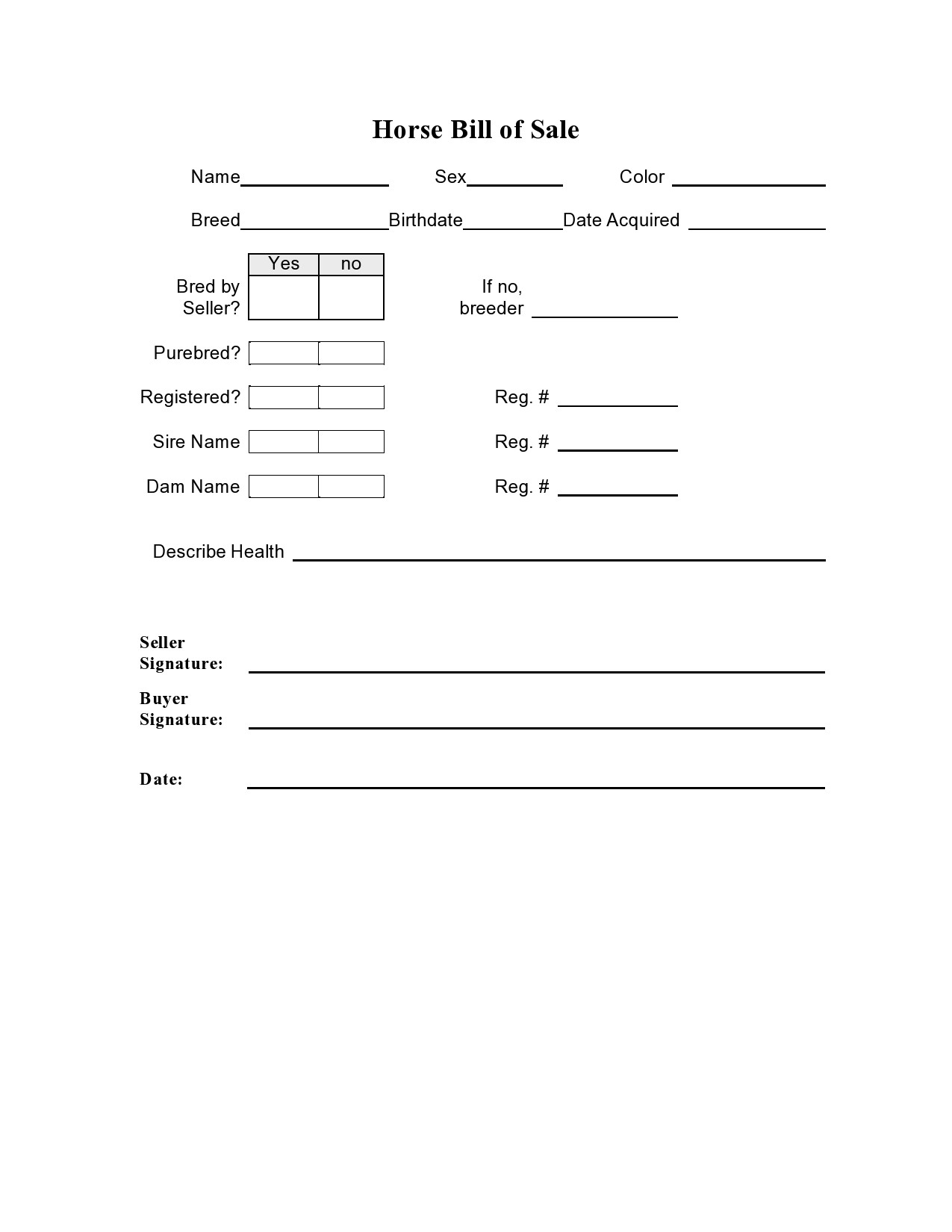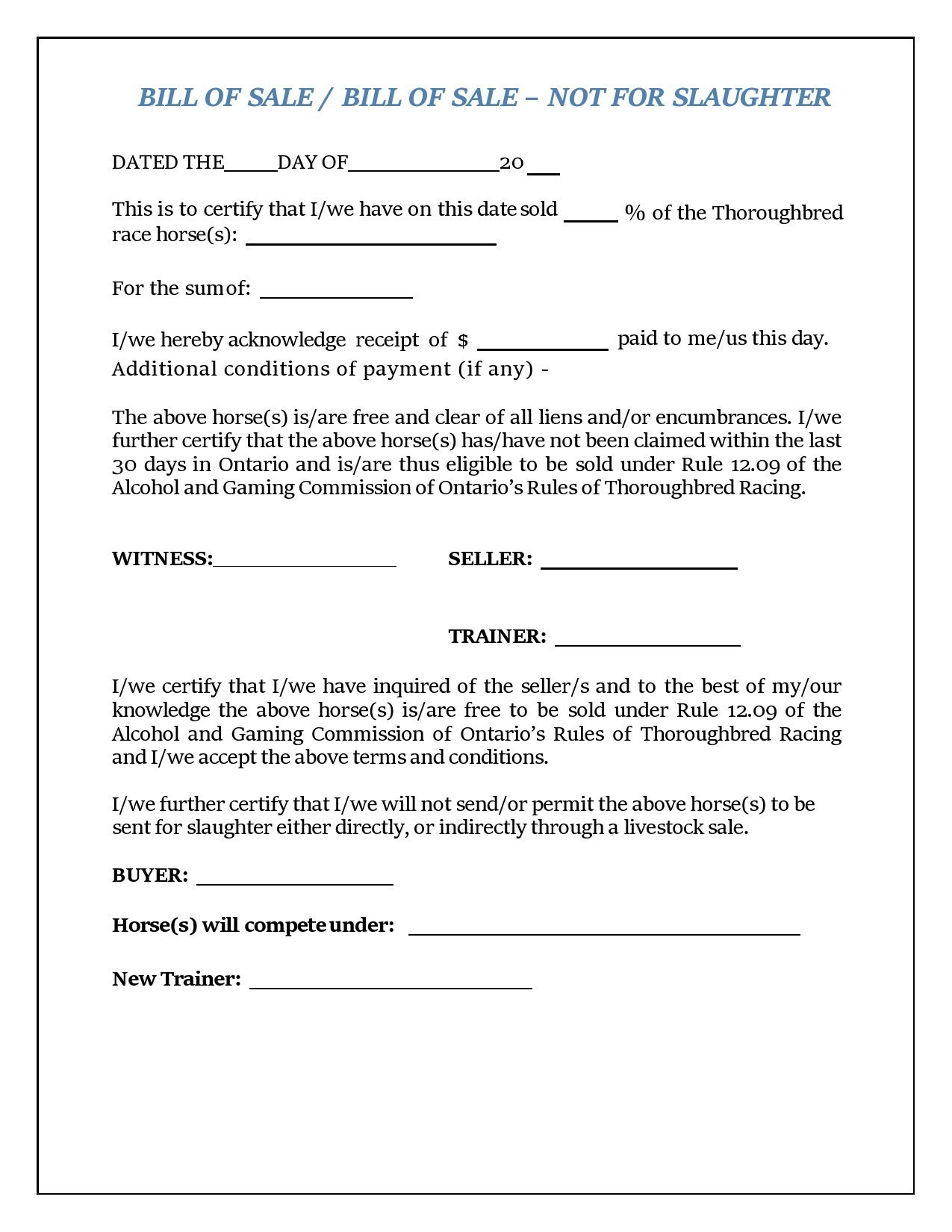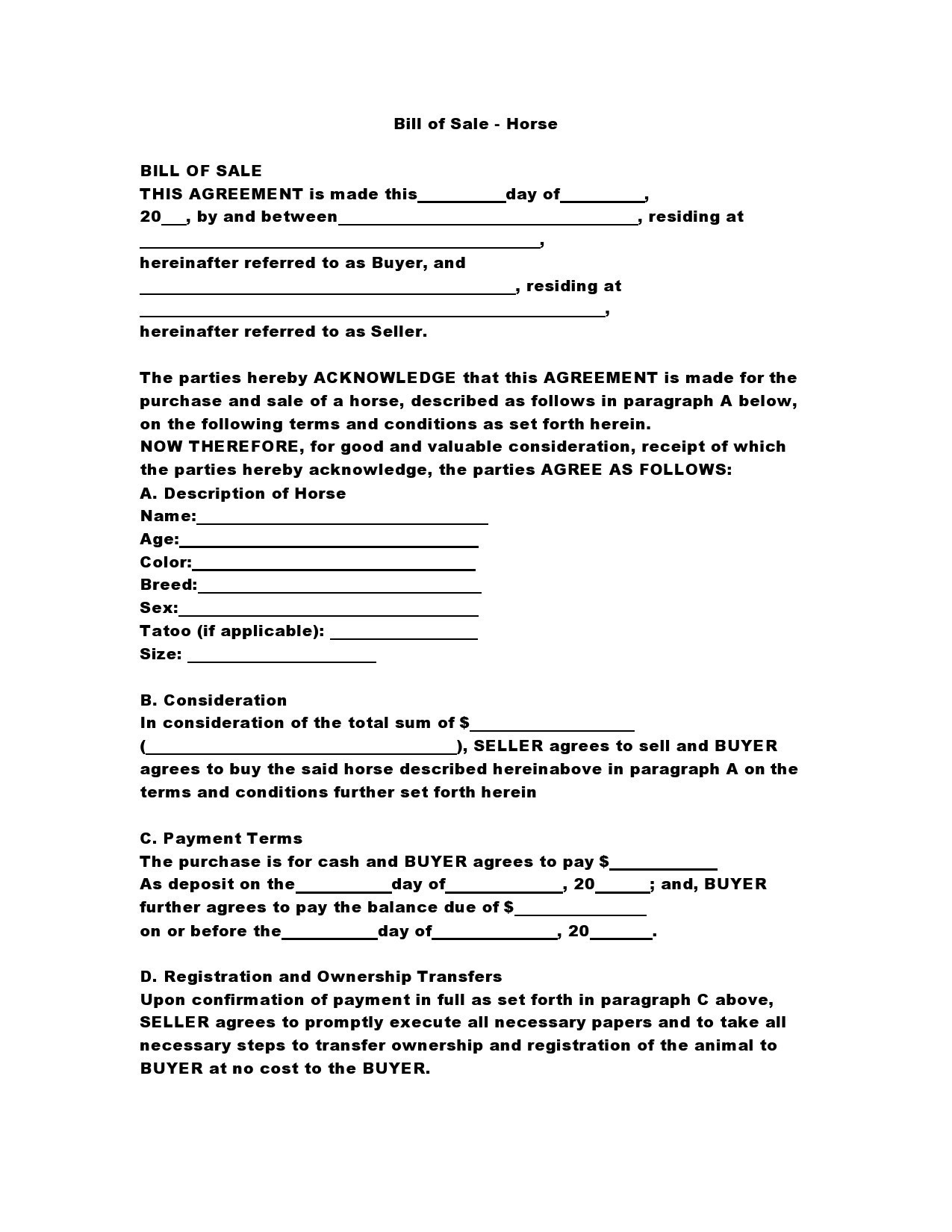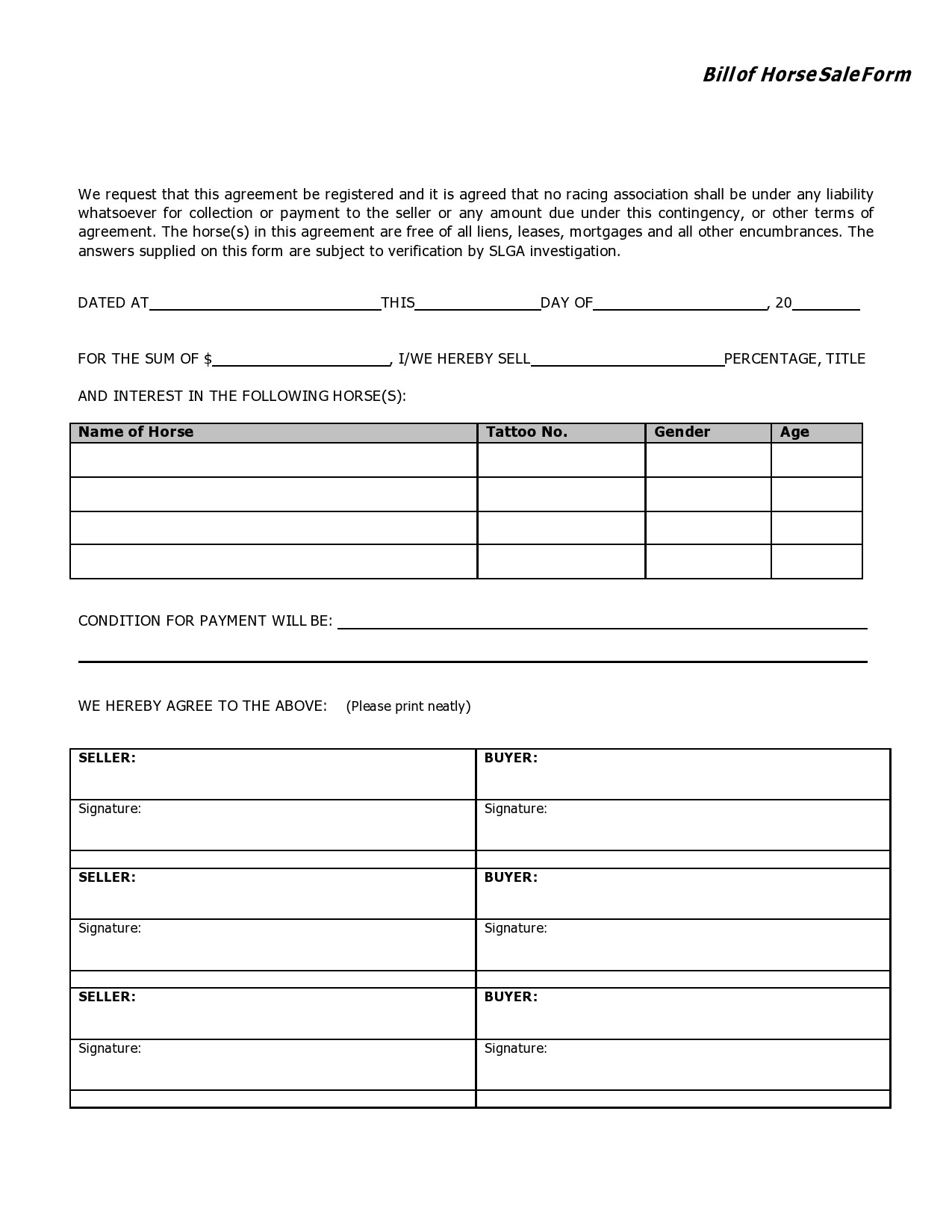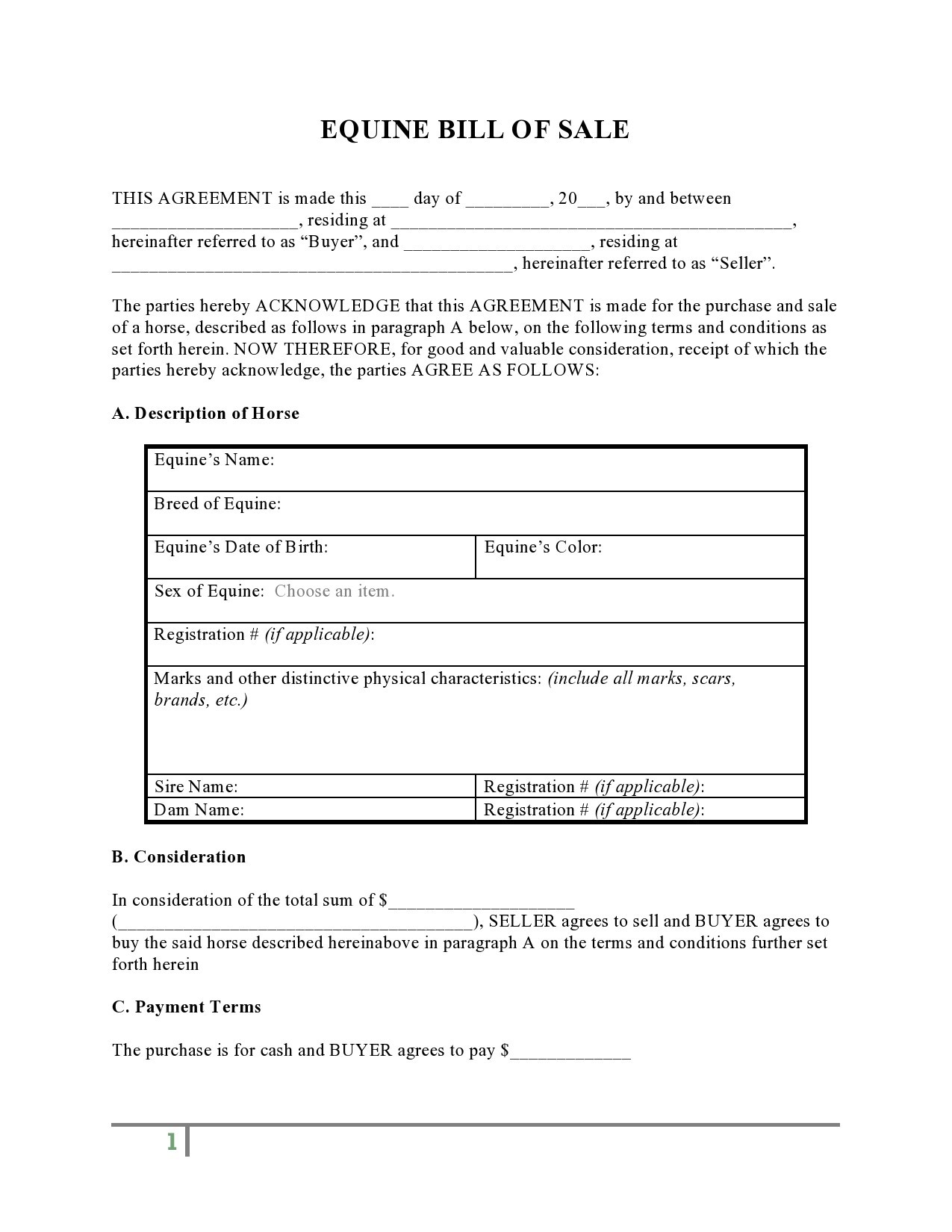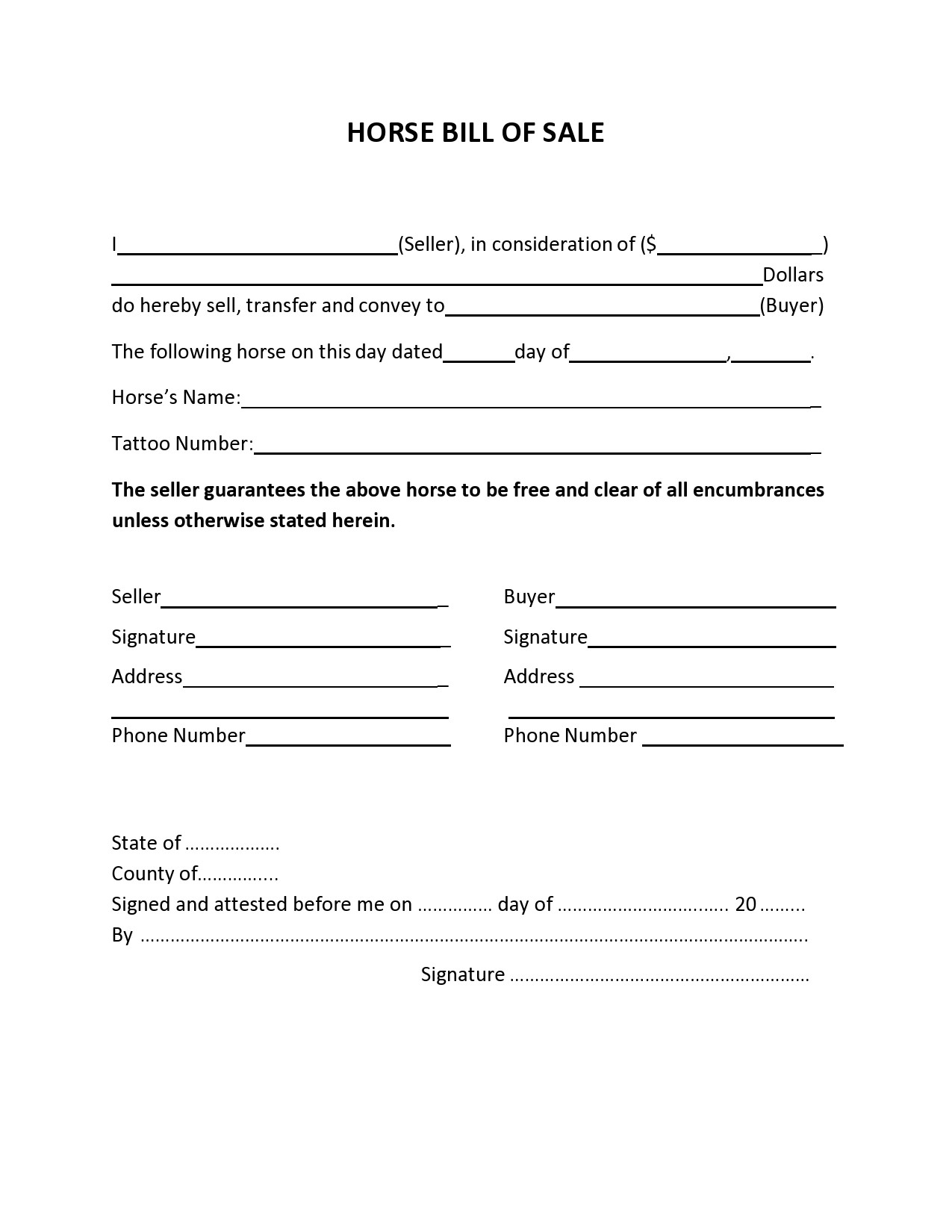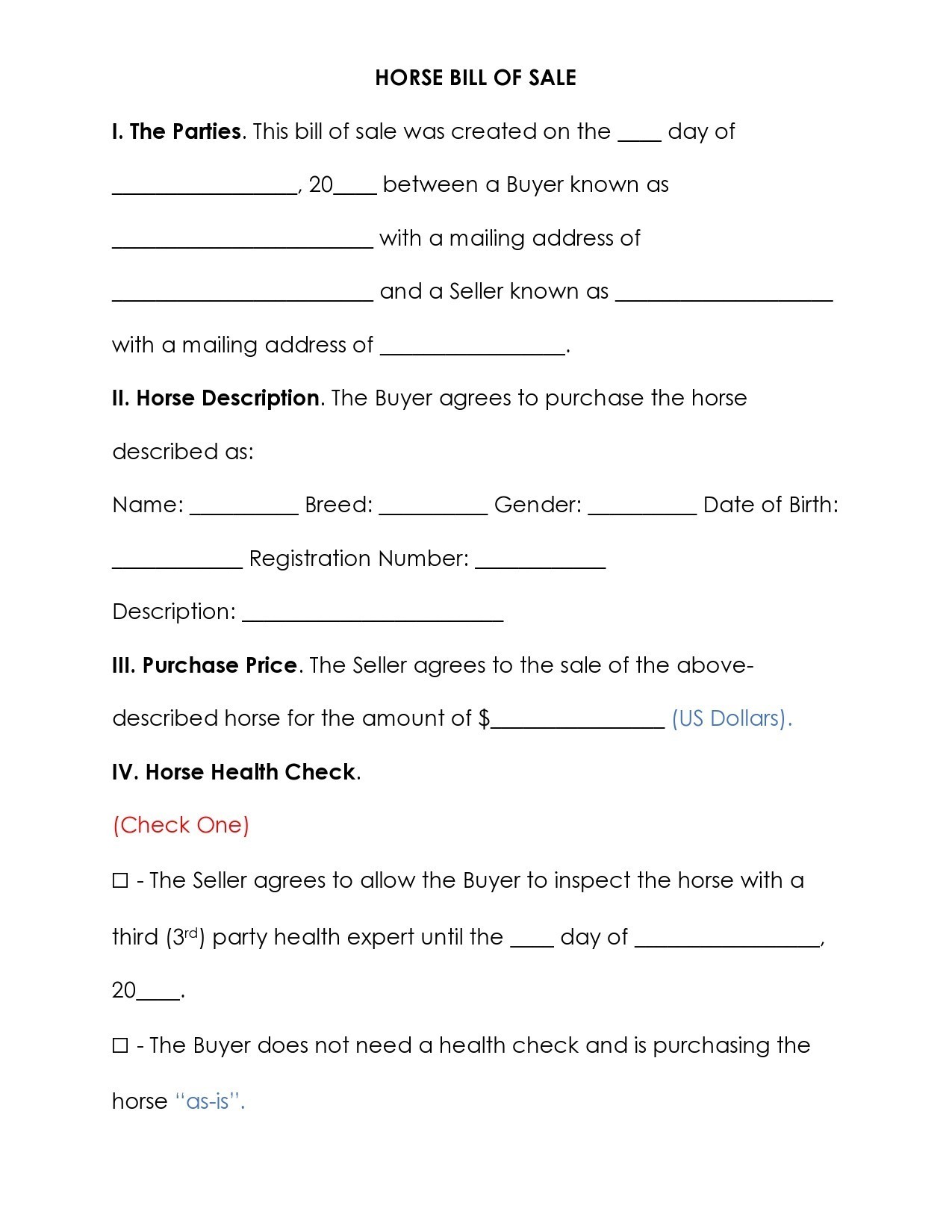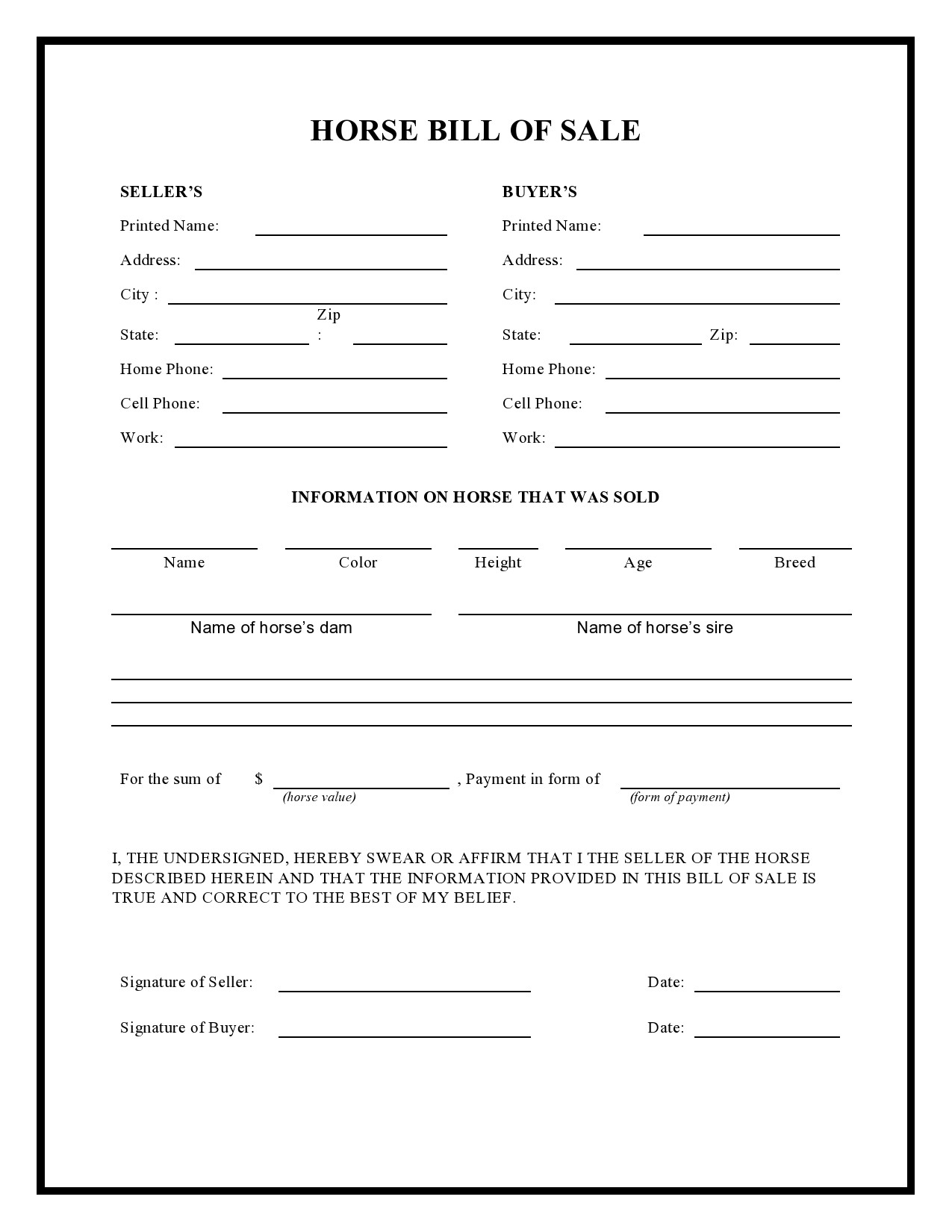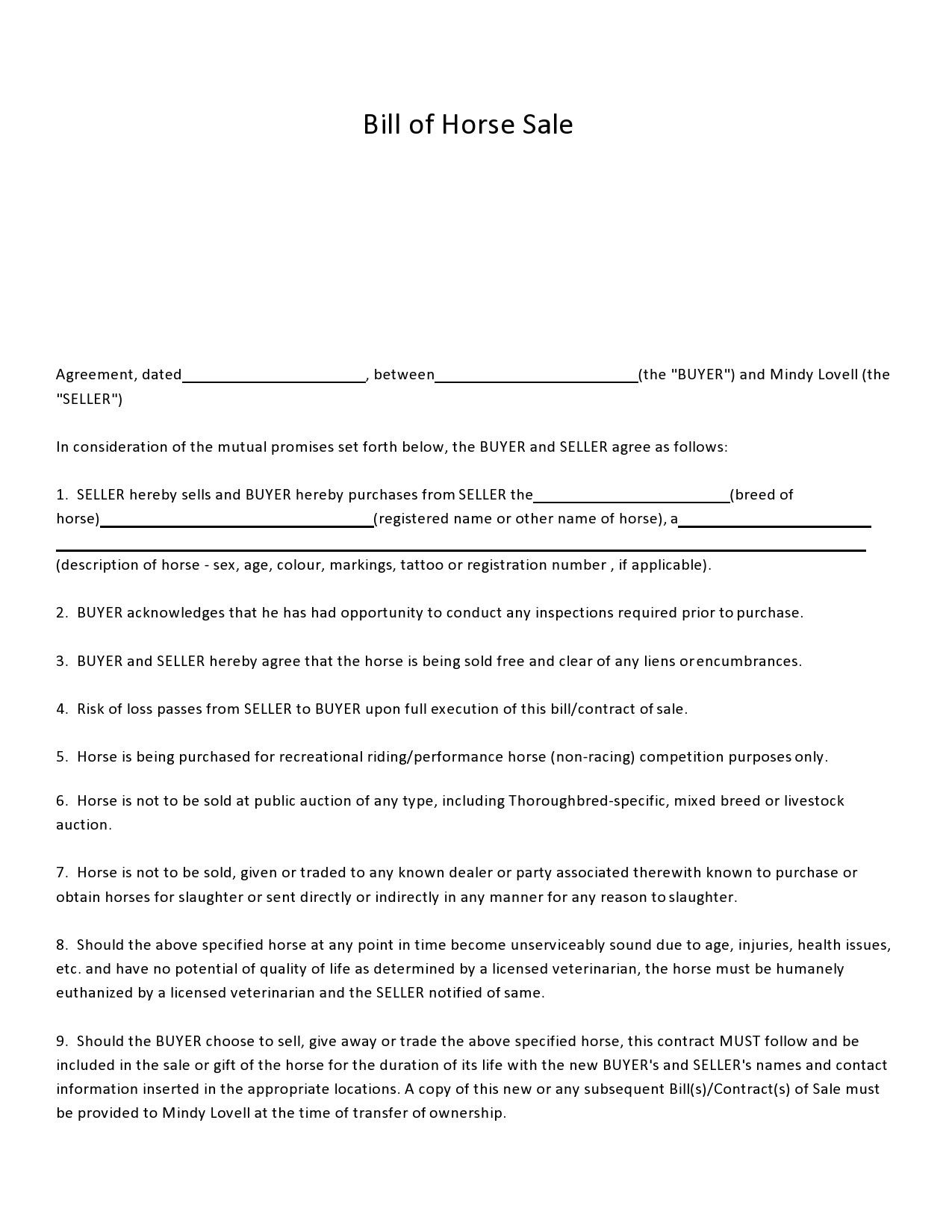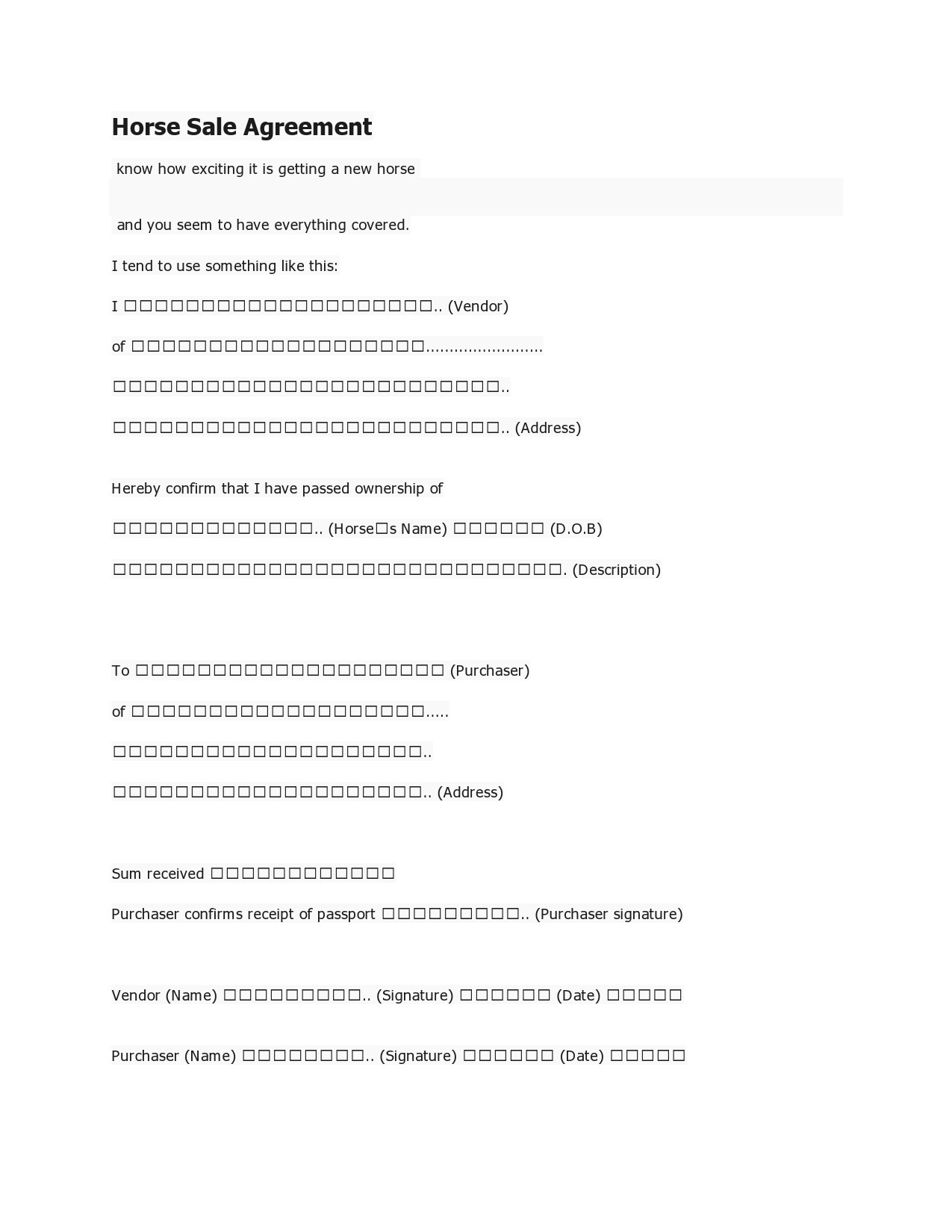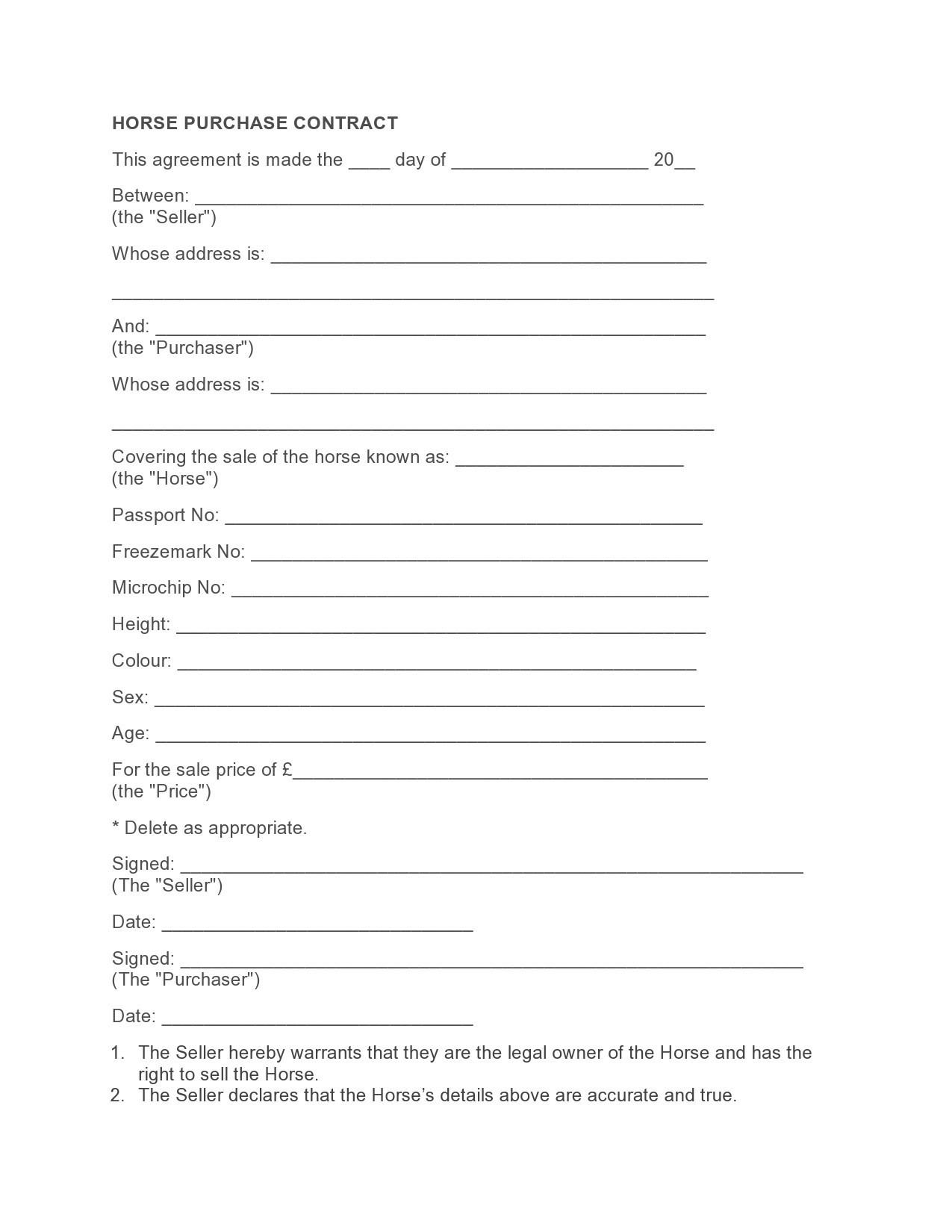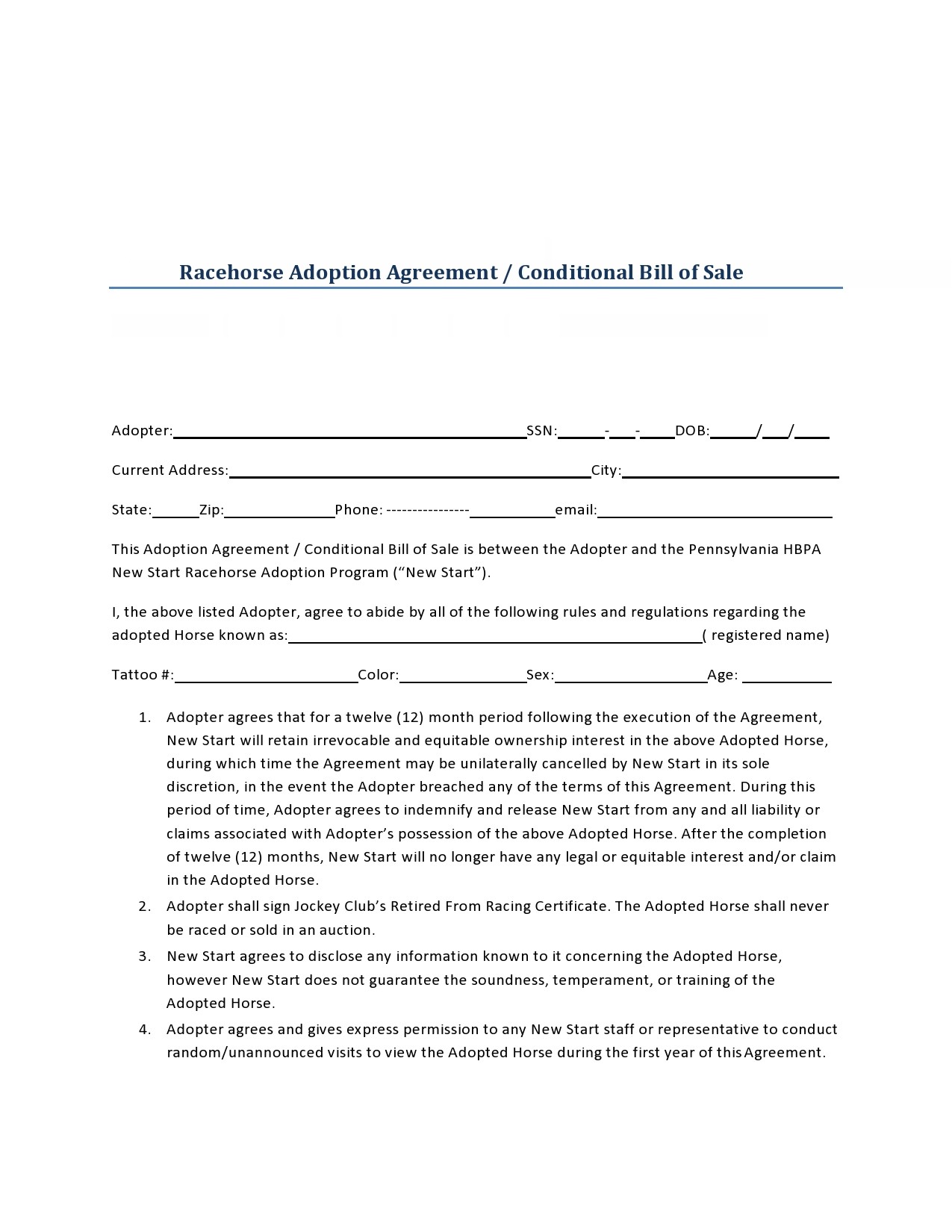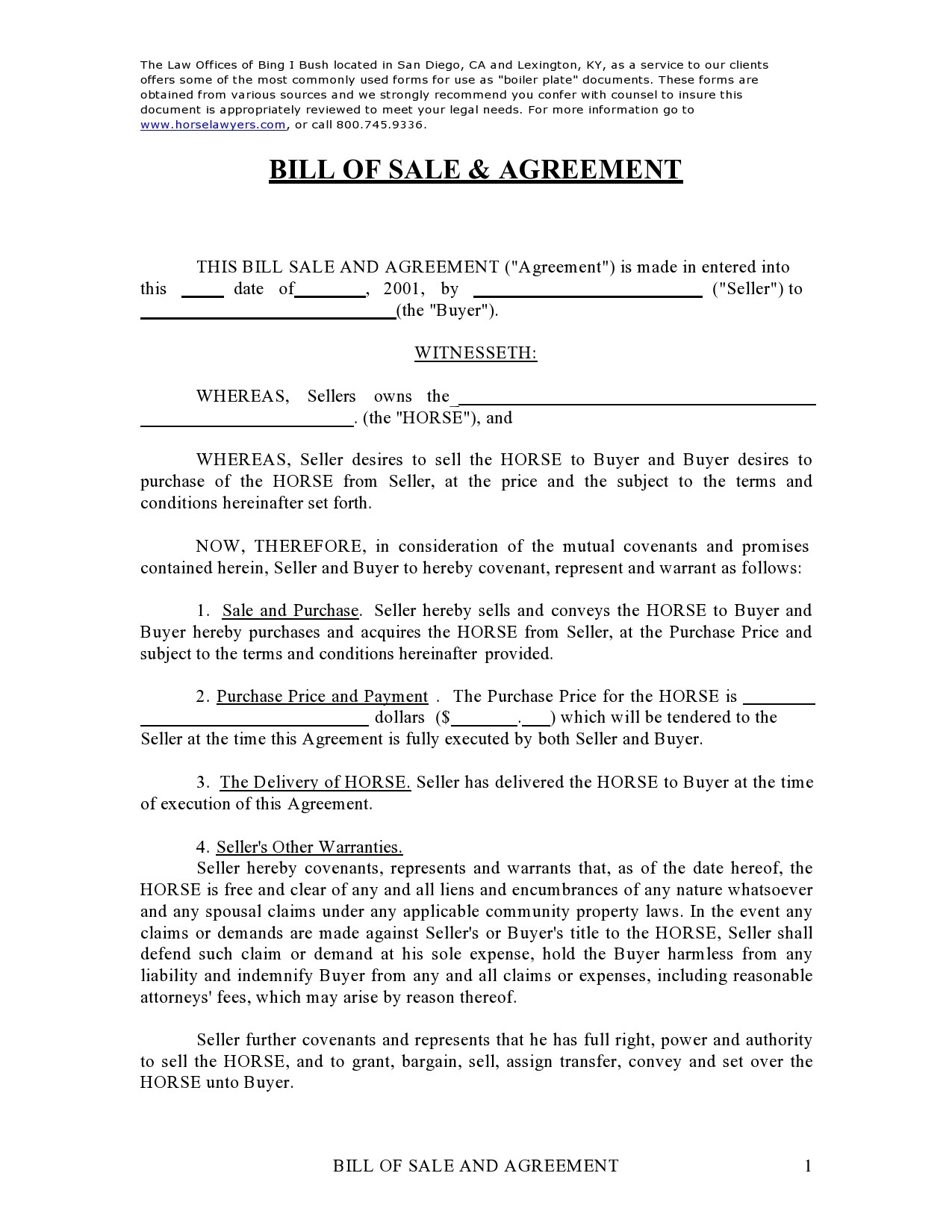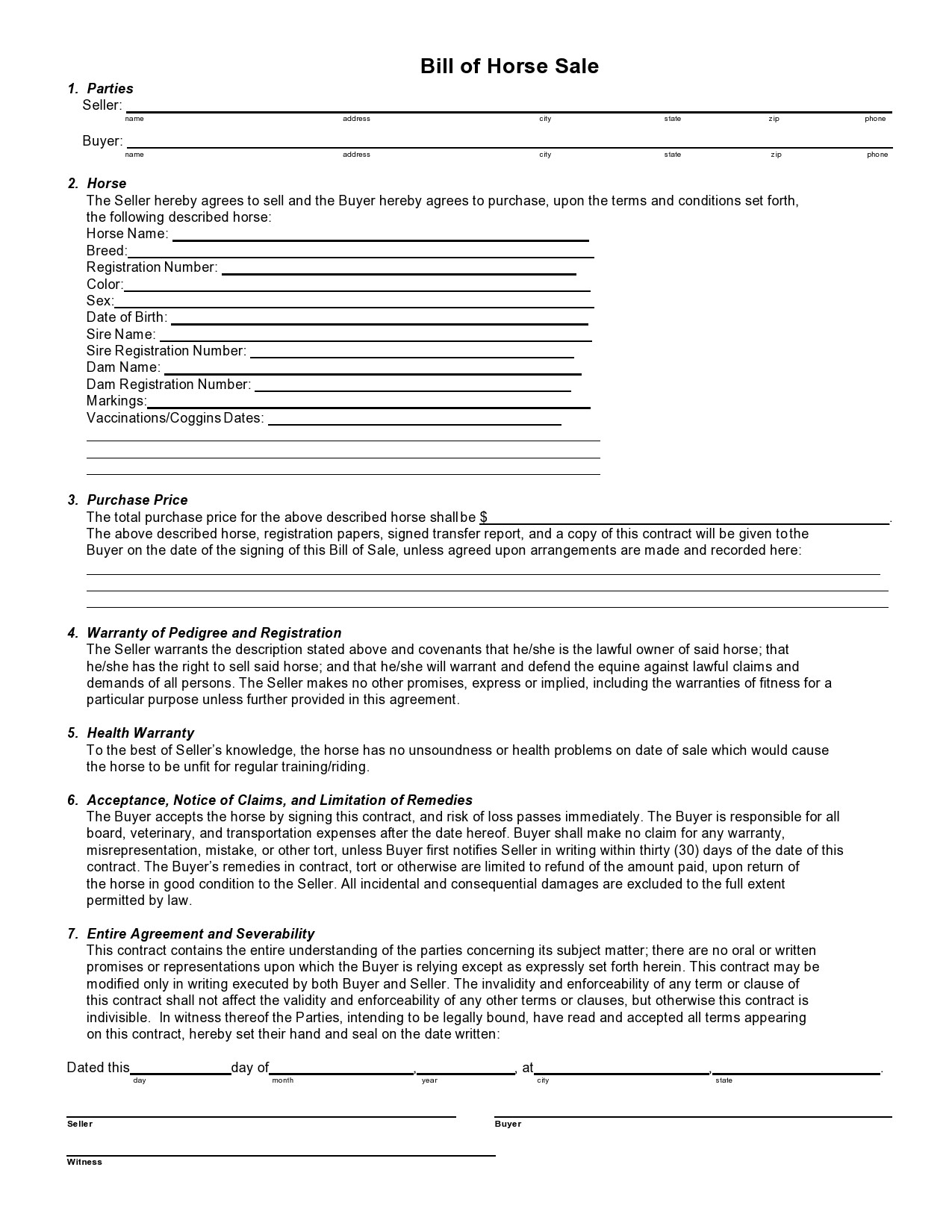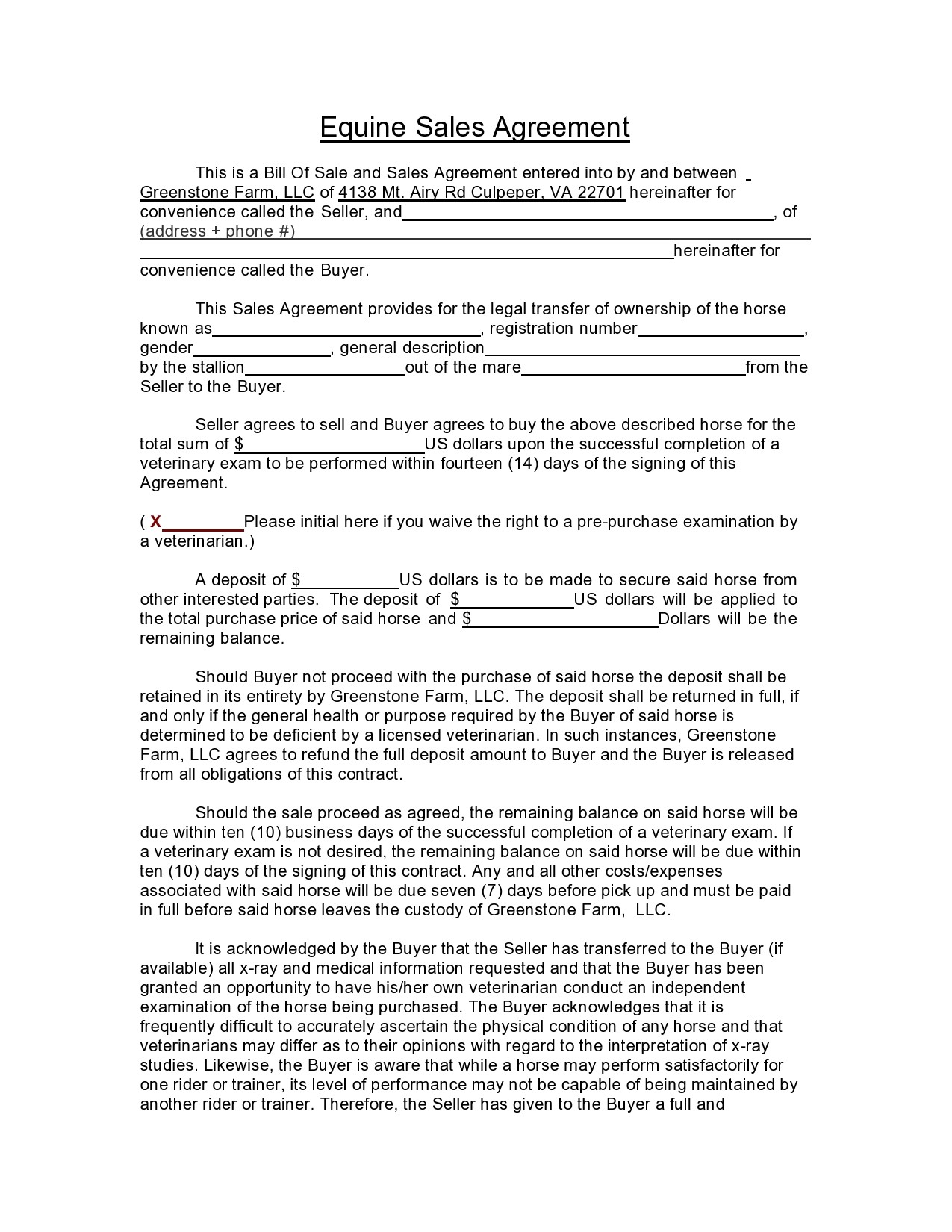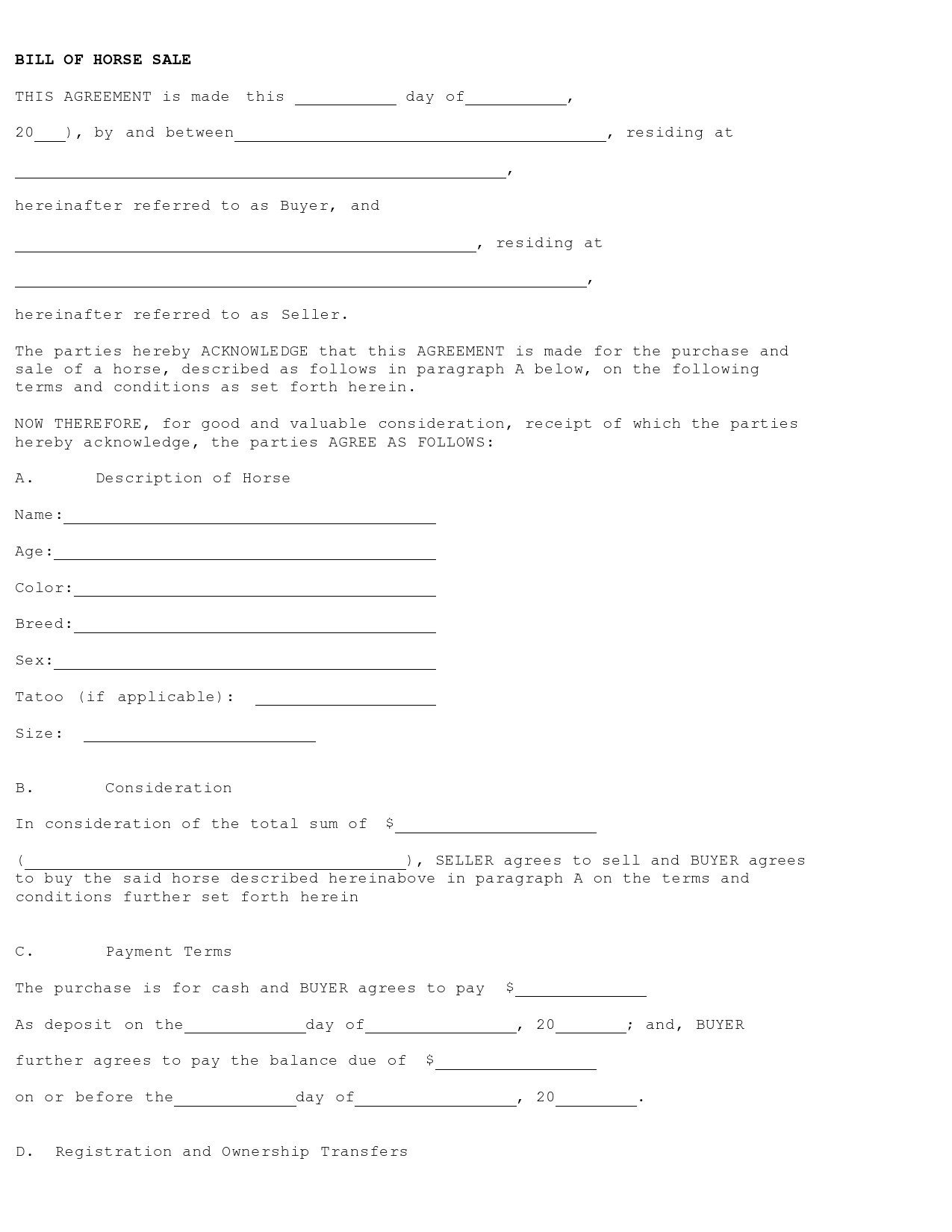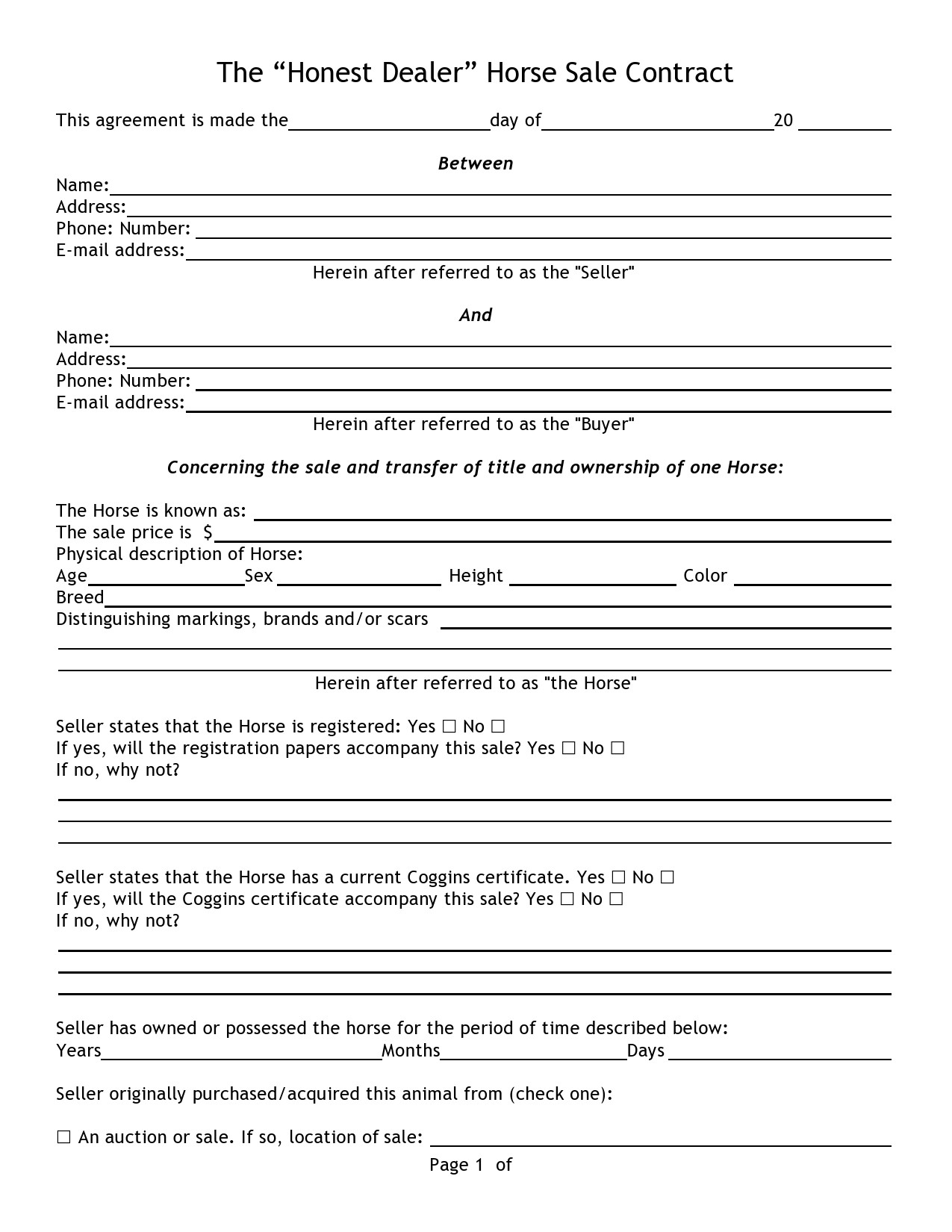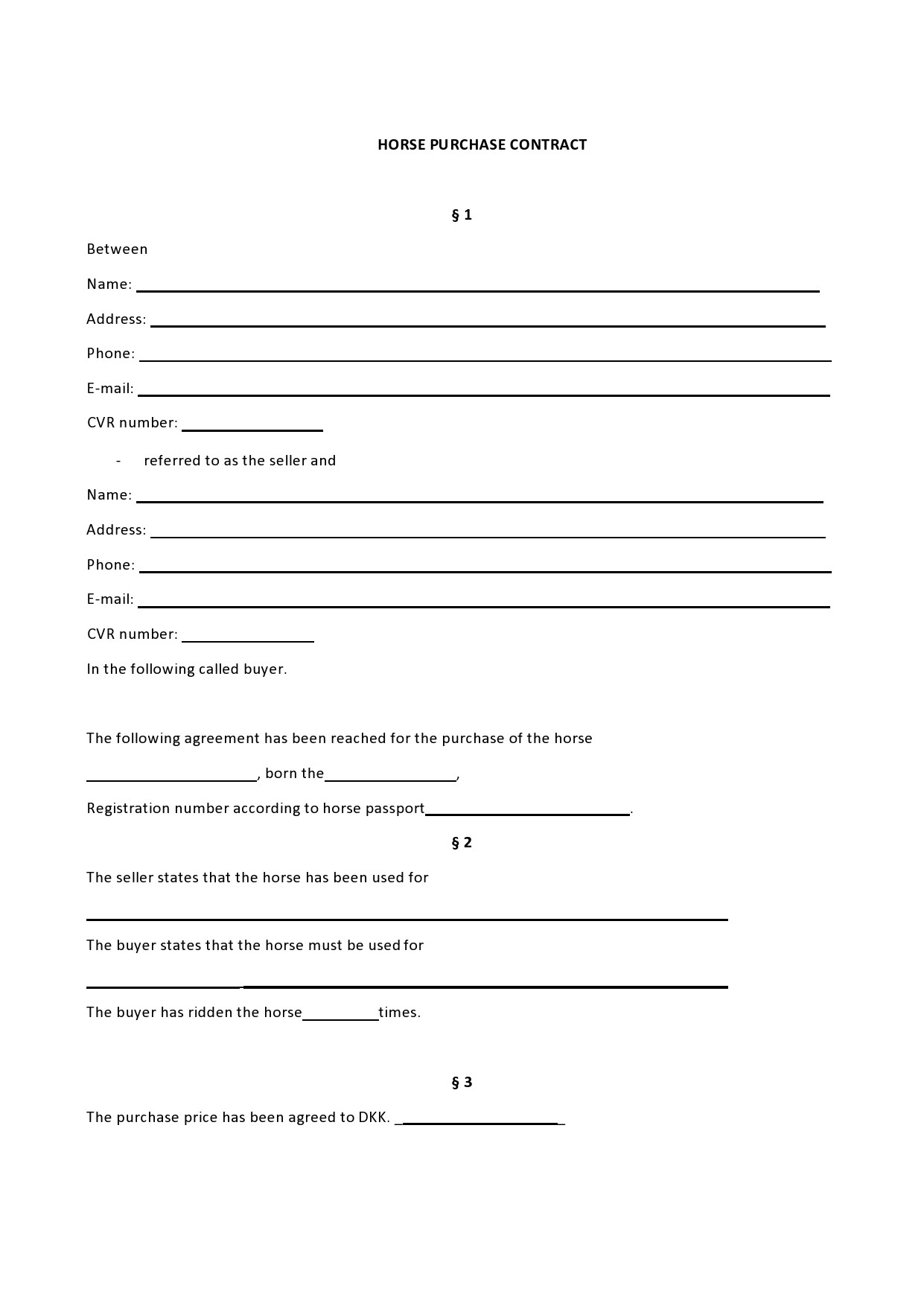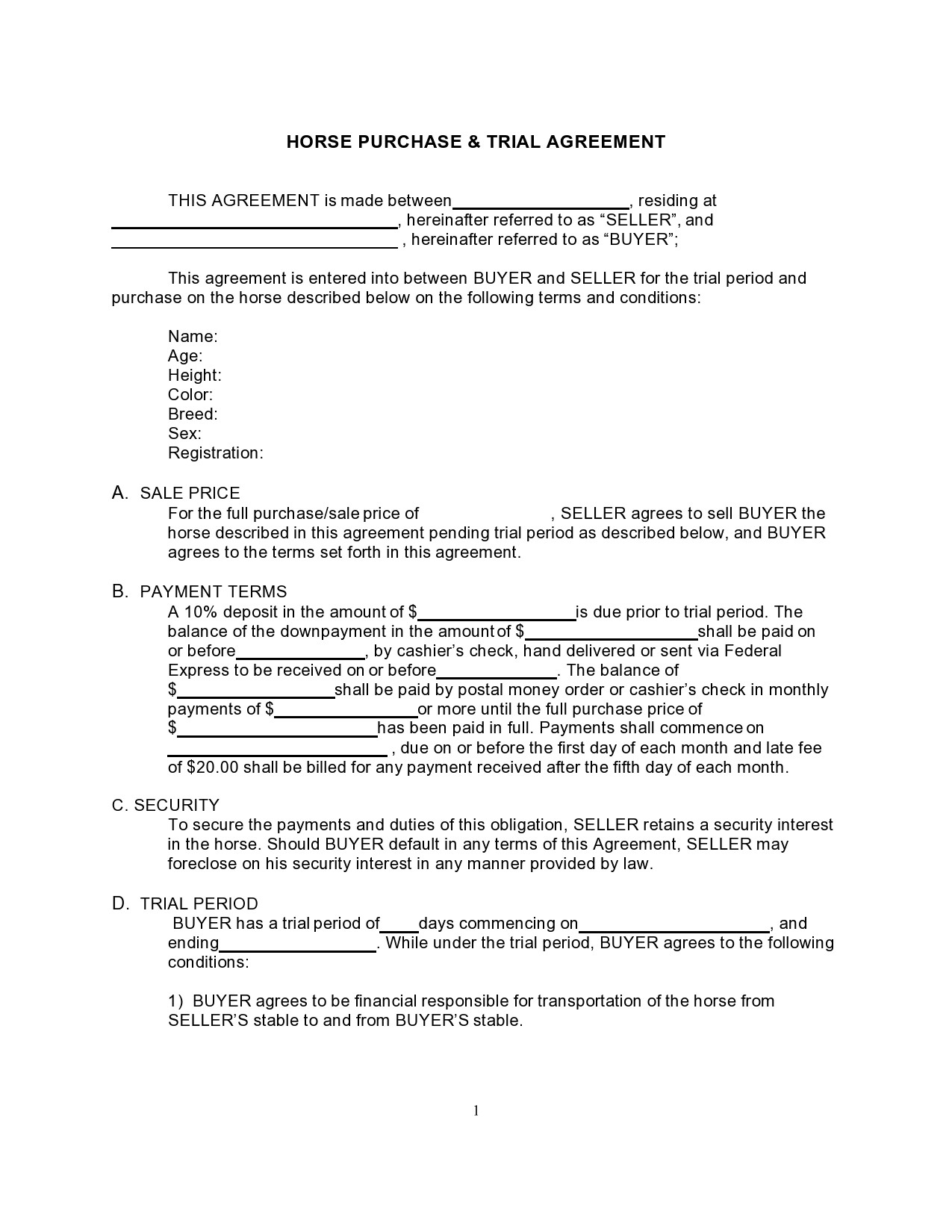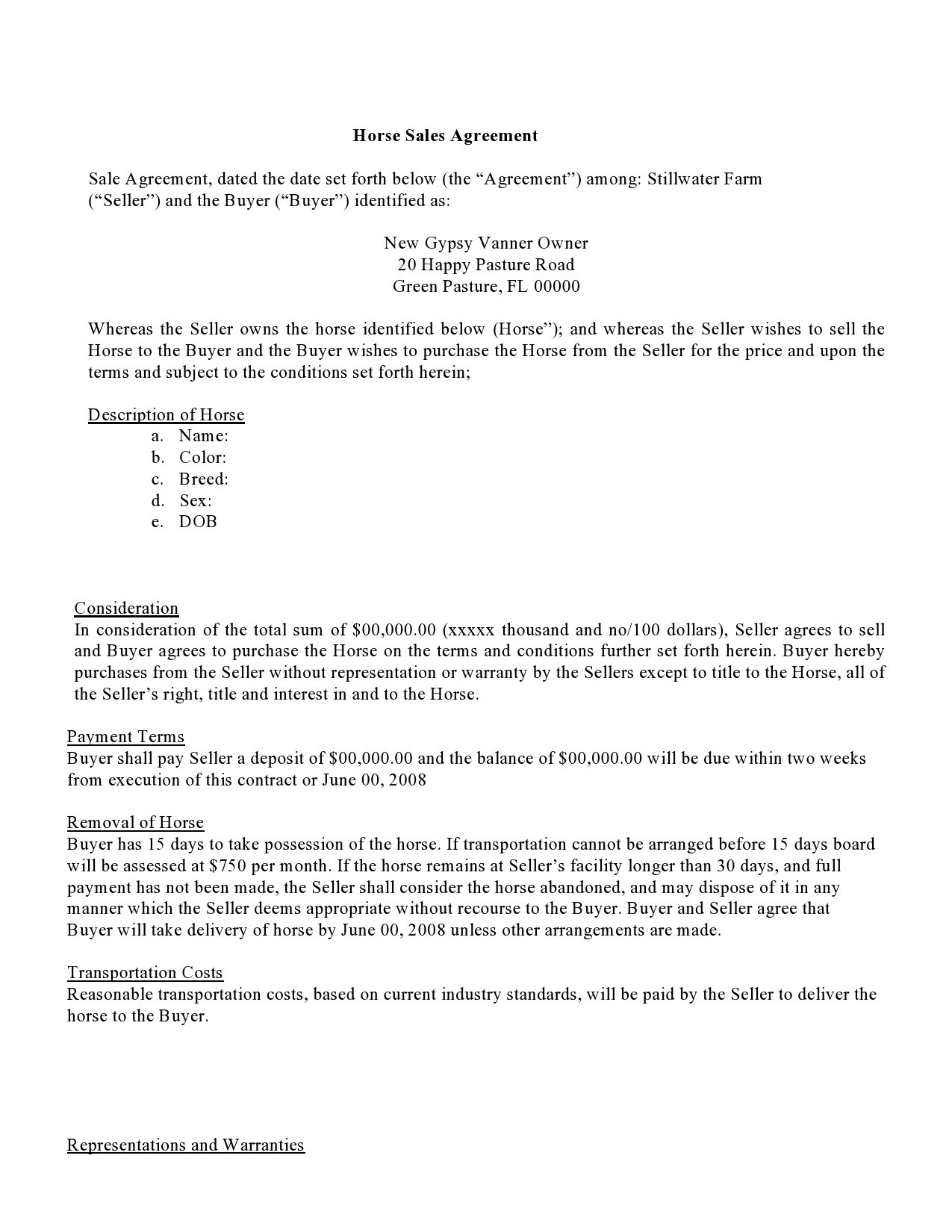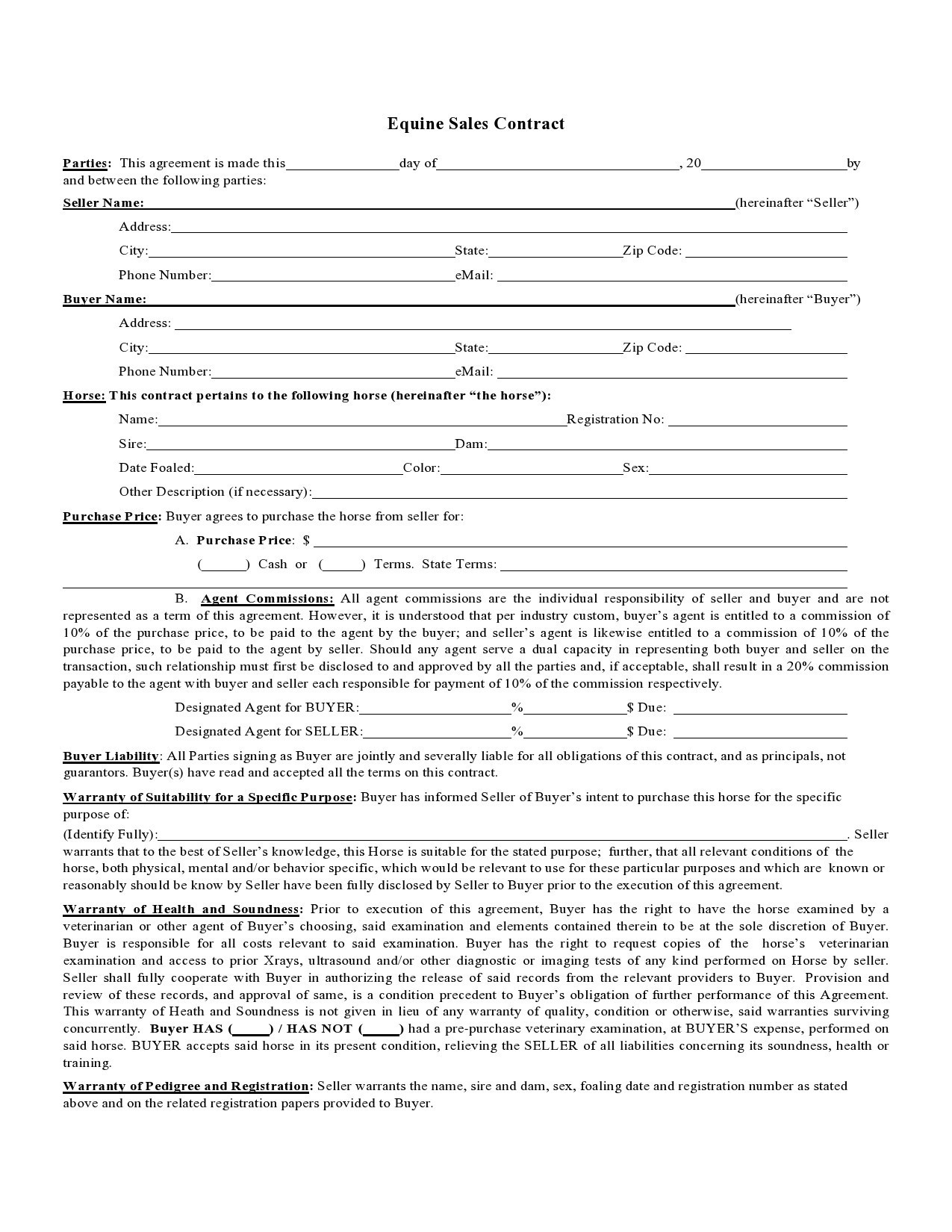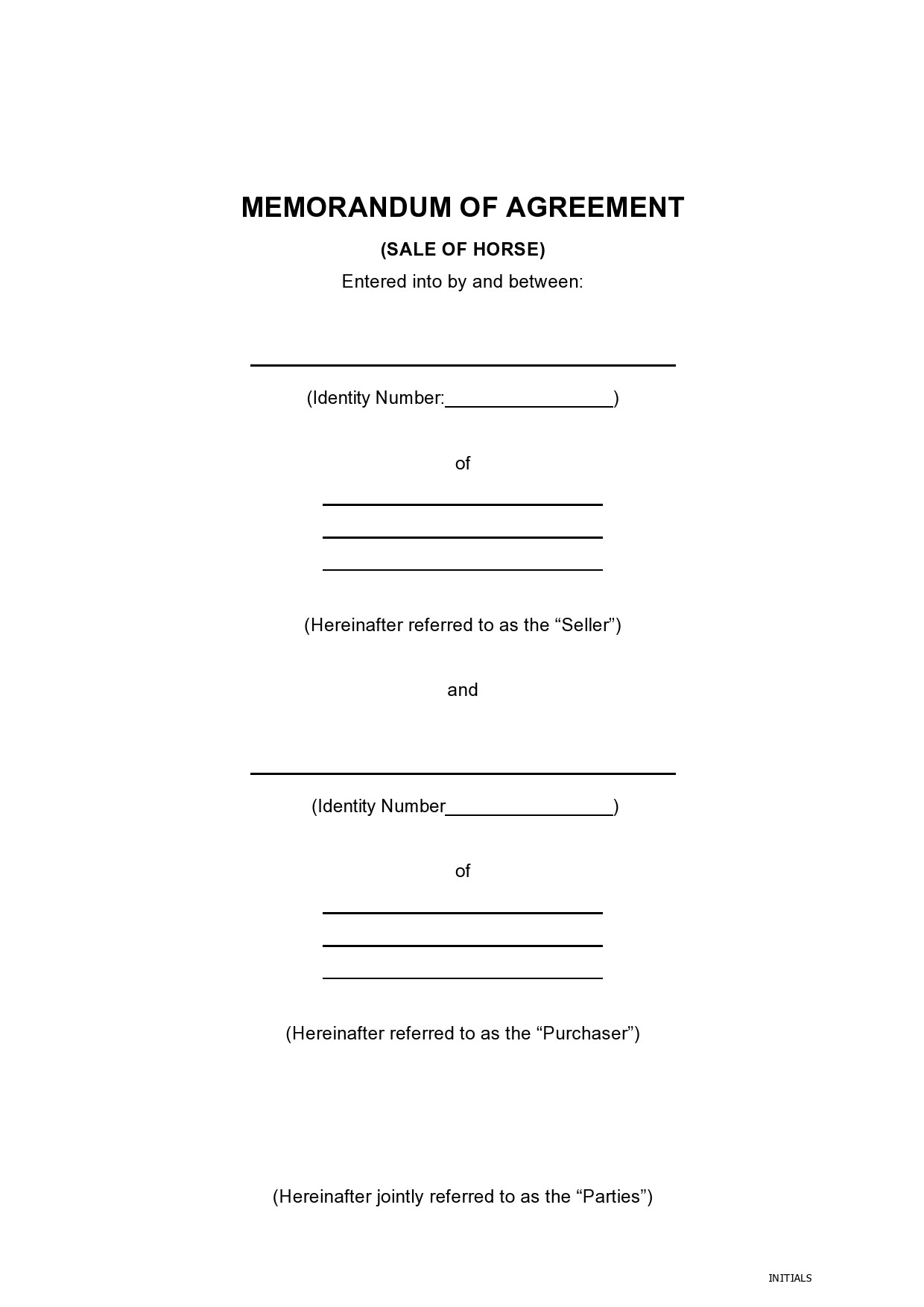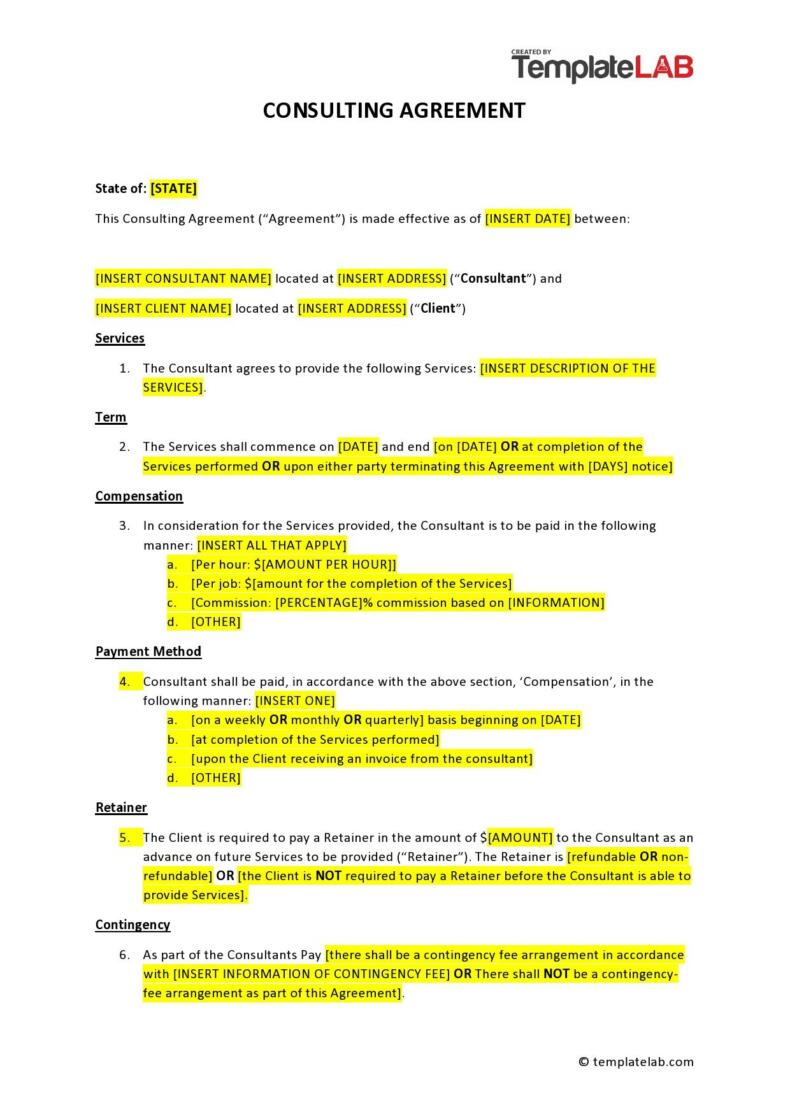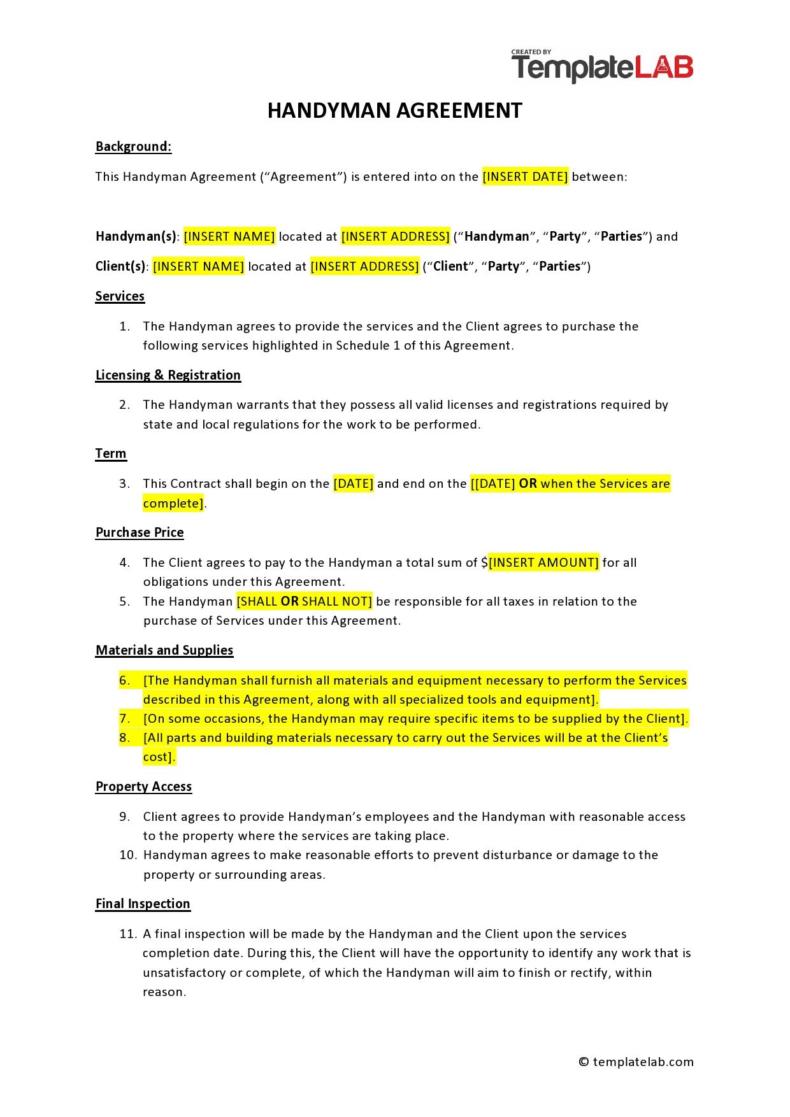When you have a horse to sell, you will need to write a horse sale contract to finalize the transaction. This is a key document that defines the details of the sale and proves that the horse was sold. In cases where the horse is papered with a registry, you will want to offer this equine bill of sale so that the new owner can notify the registry of the sale. Any horse used for competition will require that they be registered with the entity that manages the competitions they engage in. A horse bill of sale is a required document in all sales that involve a show horse or an animal used for competitions.
If you have never written this kind of bill of sale, you might not be sure how much information needs to be included in it. There are many examples of these kinds of sales documents online, but you should be sure that you are writing a sales document that pertains specifically to your situation. When you are creating a document that proves that you have sold a horse to someone else, getting the details right matters.
Table of Contents
- 1 Horse Bill of Sale
- 2 What is a bill of sale for a horse?
- 3 Equine Bill Of Sale
- 4 Do different states require different information for the sale of a horse?
- 5 Horse Sale Contracts
- 6 How do you write a bill of sale for a horse?
- 7 Horse Sale Agreements
- 8 Horse Bill of Sale Documents Are Essential to Horse Sales
Horse Bill of Sale
What is a bill of sale for a horse?
The horse bill of sale template that you write can be used over and over again when you sell horses to other parties. This is a legally binding document that proves that a horse was sold to a buyer and proves that they have taken possession of the horse. In the case of competition animals, the bill of sale is essential to prove that the new owner has the right to show the horse in their name. This can also be a key document to allow for the horse to be insured and to be sent out to a trainer or some other location for provided services.
A horse purchase agreement serves many purposes, and you will want to be certain that you use this critical document each time you sell a horse. Whether you are giving the horse away for free or selling it for a very low price, the bill of sale proves that the transaction took place and was agreed upon by everyone involved. Horse sales are documented carefully as well to eliminate some of the risks of theft and the illegal movement of horses across state lines or into other countries.
Equine Bill Of Sale
Do different states require different information for the sale of a horse?
The state where you are completing the sale of a horse can impact the information in the horse bill of sale. There is a lot of legal governance surrounding livestock sales in some states, and you need to be aware of the legal limitations and requirements in these states before you sell horses to anyone. States like California, Florida, and Kentucky actually require that a bill of sale be created each time an animal changes ownership. There might also be laws about the use of the animal that needs to be included in the sales contract if the state that the sale took place in limits the use of livestock for specific purposes.
There is often a long list of regulatory and legal information in every horse bill of sale, and you might need to work with a lawyer to be sure that all state requirements are met when you draft your bill of sale. If you operate a business where you breed animals and sell them or you are a horse trainer, you will also need to include language to indicate that the horse is sold “as-is” and that the buyer cannot come back and take legal action for the horse being in some other condition than expected upon arrival.
Many horse sales can be complicated by the process of transporting the horse from one state to another as well, which might need to be discussed in the sales document. The seller of the horse is not responsible for the treatment of the horse while it is being transported, and they cannot prevent the horse from being injured while it is being moved to its new home by another party. Horse sales contracts often state clearly that the responsibility of the seller ends the moment the horse is handed over to the new owner or to a shipping company that is delivering the horse to the new owner for this reason.
Horse Sale Contracts
How do you write a bill of sale for a horse?
Bills of sale for horses include specific information to ensure that the horse in question is correctly identified and to make sure that the horse can be registered with a breed registry by the new owner. The specifics of this kind of contract cannot be skipped over, or the contract will not be legally binding and might not hold up in court. Horses often sell for very high dollar amounts, which can mean that cases related to ownership or sales processes will not be heard in small claims court but will be heard in front of a higher court of law. Having all the right information in the sales document that you create is key to avoiding legal issues down the road.
- The Buyer. The buyer will be indicated at the top of the document by legal name, and their address and contact information should be present as well. If there is more than one person who is buying the horse, the full legal names of all the parties and their contact information needs to be indicated in this section of the document. If a trust or a group of some sort is buying the horse, the information for the group or the syndicate, etc, needs to be legally accurate as well.
Keep in mind that registration entities will usually require that all the parties who want to be named as the new owners of the horse will need to be listed in the sales document. If someone is left off the sales contract, they will not be able to be listed as a registered owner of the animal. - The Seller. The seller or the seller’s agent will have to be present in this part of the document. If the seller is using an agent for the sale, the agent will need to be clearly stated to be the agent, and the named owner on the papers of the animal also should be present in this part of the document. Full legal names and contact information for the seller need to be in this part of the contract. If the seller is an entity or trust, or syndicate, this entity needs to be named carefully and correctly here as well.
- The Price of the Horse. The full purchase price of the horse has to be noted correctly in this part of the document, and you will need to indicate if this purchase is being done in a single payment or a series of payments. Both kinds of payment options can be common in the horse industry, but the horse will typically not be able to be registered with an organization until the horse is fully paid off.
- Horse Information. The horse should be described thoroughly here. The full registered name of the horse must be used in this section if there is one. No nicknames can be used for registered animals. The horse’s registration number or numbers will need to be added here, and a description of the animal can be offered. Include the sire and the dam of the horse, its color, its age, any markings that it has, its height, and any other identifiers like brands or marks that might define the horse specifically. This is key information for the registry down the road, but this section also ensures that the right animal is being sold to the buyer.
- The Location of the Sale. The location of the sale of the animal should be listed here. This is usually the home address of the seller or the selling entity. This is key information in case the buyer wants to claim later that they did not get the horse from the state buyer or if they want to indicate that the horse was purchased in another state or location for some reason.
- Condition of the Horse. This section of the document states that the horse is sold “as-is”. Horses are almost never sold in any other stated condition because you cannot control what the new owner does with the animal once it has left your property.
- Breeding Rights. If the horse can be used for breeding, the seller might want to reserve breeding rights for the animal for use in the future. This can be limited to a specific number of breedings or might be considered a right that is in place for the lifetime of the animal. Due to advances in the breeding of horses, there are many ways to allow for horses to have many foals in the same year, and the specifics of this process can be outlined here to limit what is and what is not allowed with regard to breeding in the future.
- Commission. The commission that is paid to the seller or the buyer’s agent will need to be listed here. It is common practice for the seller to split their commission with the buyer’s agent, but that is not a requirement. Any parties who are getting a commission from the sale will need to be included in this section, and their commission amount has to be listed correctly.
- Deposit. If there was a deposit that was placed on the animal to hold it until the buyer could complete the purchase, the nature of the deposit and its relation to the finalized sale must be included in this section.
- Registration Papers. A section that explains how the registration of the animal will be completed after the sale is common practice. You will indicate in this section when the papers will be sent away to the new owner, or you can state that the new owner had possession of them as of the date of the sale.
- Vet Examination. If a veterinary examination was part of the process of the sale and had something to do with the purchase price or the final steps of the sale, this information can be included here. The contact information for the veterinarian in question can be listed here in case there are questions in the future.
- Signatures. All the parties involved in the sale will need to sign the document and date it. If the seller has an agent acting on their behalf, the seller will not need to sign the document but will need to sign the papers of the horse so that the new owner can register it in their name. This is one of the key things that must be done when selling a horse because a sales document that is not signed is not legally binding in any way.
Horse Sale Agreements
Horse Bill of Sale Documents Are Essential to Horse Sales
Even if you are planning to just give a horse away to someone else, you will need to have a sale document that indicates that a sale took place. The horse sales process can impact the ability of the new owner to register the horse with a breed registry, and without proper documentation, they might not be able to exhibit the horse or compete with it. Horse bill of sale documents are required in some states by law, but they are always a good practice when selling horses to anyone, even friends and family.
The more detail that is included in your horse bill of sale, the better. Make sure that you do not leave out any of the above information, or your sale document might not be of any use to you or the buyer of the horse.

